Antler Joe & The Accidents Go Commercial! 7″ (Feral Kid) (Last Laugh)
 Damn! Here’s a random and unfortunate punk-reissue coincidence: Feral Kid and Last Laugh reissued the same obscure punk EP independently of each other at basically the exact same time! Unfortunate for the labels, that is, seeing as I’m sure they both put in plenty of effort, time and money to make it happen (each of whom, it’s my understanding, were in direct contact with either family or surviving members of the band, independently of each other), and some other label went and did the exact same thing. Not unfortunate for us connoisseurs of extraordinary classic punk music, though, as original copies of Go Commercial!‘s 1981 Killer Sheep Records release command horror prices, and these songs deserve a wider audience than the papered collector elite. Hailing from Florida, “Antler Joe & The Accidents” certainly sounds like it’s the name of a joke band, but these songs are obnoxious-teen punk rock from the top shelf, on par with The Authorities, The Lewd, Nervous Eaters and The Eat. “Dogshit” is my pick, but the party-rock vibes of “Who Needs A Woman Like You”, alongside its gratuitous saxophone soloing, is a gift to the ears as well. I’m not sure if Antler Joe is one of the surviving members of the group or not, but I cannot imagine he envisioned two boutique labels eagerly reissuing his rude punk songs some 41 years after hitting the studio. Annoying his neighbors and “everyone in Ft. Myers” was probably satisfying enough. Both reissues are true to the original with cover art, lyric insert and sonic quality, so you can’t go wrong with either, you can only go wrong without.
Damn! Here’s a random and unfortunate punk-reissue coincidence: Feral Kid and Last Laugh reissued the same obscure punk EP independently of each other at basically the exact same time! Unfortunate for the labels, that is, seeing as I’m sure they both put in plenty of effort, time and money to make it happen (each of whom, it’s my understanding, were in direct contact with either family or surviving members of the band, independently of each other), and some other label went and did the exact same thing. Not unfortunate for us connoisseurs of extraordinary classic punk music, though, as original copies of Go Commercial!‘s 1981 Killer Sheep Records release command horror prices, and these songs deserve a wider audience than the papered collector elite. Hailing from Florida, “Antler Joe & The Accidents” certainly sounds like it’s the name of a joke band, but these songs are obnoxious-teen punk rock from the top shelf, on par with The Authorities, The Lewd, Nervous Eaters and The Eat. “Dogshit” is my pick, but the party-rock vibes of “Who Needs A Woman Like You”, alongside its gratuitous saxophone soloing, is a gift to the ears as well. I’m not sure if Antler Joe is one of the surviving members of the group or not, but I cannot imagine he envisioned two boutique labels eagerly reissuing his rude punk songs some 41 years after hitting the studio. Annoying his neighbors and “everyone in Ft. Myers” was probably satisfying enough. Both reissues are true to the original with cover art, lyric insert and sonic quality, so you can’t go wrong with either, you can only go wrong without.
Avvitagalli None Corsa LP (Horn Of Plenty)
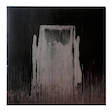 New Valentina Magaletti alert! Under the Avvitagalli name, she’s teamed up with Pino Montecalvo for a deep suite of exploratory improv, and Magaletti’s seal of quality remains firmly intact. Unlike her varied other projects that focus on rhythmic churn or complexity, the percussion here is free and unrestrained, used more for color and shape than structural integrity, or sometimes not utilized at all in favor of anti-musical motifs. It helps that the pair seem to have a wild variety of instruments at their disposal: alongside drums and keyboards, these two dabble with marimbas, keys, voice, piano, tapes and radio, and usually utilize only a small handful of sonic elements per track (most of which are fairly short, between one and three minutes). The results end up sounding like This Heat improvising for the FMP label, or one of those early ’80s Igloo Records releases I’ve never heard because no YouTube clips exist and I can’t bring myself to pay $150 on Discogs to find out. (That might be the biggest stretch of a musical comparison I’ve ever laid down in these pages, but I refuse to be silenced.) The second side of the album is inhabited entirely by “The Last Shiny Bones Of The Duno Ghost”, a richly psychedelic offering that switches modes throughout – the haunted grand piano is a nice touch, surrounded by scratchy field recordings, looped samples of previous lives, and Magaletti’s unmistakable percussive vocabulary. Great stuff all around.
New Valentina Magaletti alert! Under the Avvitagalli name, she’s teamed up with Pino Montecalvo for a deep suite of exploratory improv, and Magaletti’s seal of quality remains firmly intact. Unlike her varied other projects that focus on rhythmic churn or complexity, the percussion here is free and unrestrained, used more for color and shape than structural integrity, or sometimes not utilized at all in favor of anti-musical motifs. It helps that the pair seem to have a wild variety of instruments at their disposal: alongside drums and keyboards, these two dabble with marimbas, keys, voice, piano, tapes and radio, and usually utilize only a small handful of sonic elements per track (most of which are fairly short, between one and three minutes). The results end up sounding like This Heat improvising for the FMP label, or one of those early ’80s Igloo Records releases I’ve never heard because no YouTube clips exist and I can’t bring myself to pay $150 on Discogs to find out. (That might be the biggest stretch of a musical comparison I’ve ever laid down in these pages, but I refuse to be silenced.) The second side of the album is inhabited entirely by “The Last Shiny Bones Of The Duno Ghost”, a richly psychedelic offering that switches modes throughout – the haunted grand piano is a nice touch, surrounded by scratchy field recordings, looped samples of previous lives, and Magaletti’s unmistakable percussive vocabulary. Great stuff all around.
Barry Neolithic Homosex / No More Boys 7″ (Related)
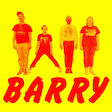 What is it about the name “Barry” that’s ripe for artistic incorporation? There’s the HBO show, there’s this charmingly queer indie-pop group out of London, and if there were to be a Barry cereal or a Barry fashion line, I’d probably enjoy those too. This quick two-song single is some serious fun in the sun – don’t let the somewhat intimidating title of “Neolithic Homosex” fool you, this song is as cheery and upbeat as The Vaselines on bank holiday. Groovy bassline, chant-along chorus (which is also the song title), it reminds me that pop-conscious underground rock n’ roll is a timeless, glorious thing. “No More Boys” is quaint and equally charming, right in line for fans of Go Sailor, Jonathan Richman, K Records and The Reds, Pinks And Purples, crisp indie-pop that’s as simplistic and homespun as it is satisfying. And if this somehow wasn’t appealing enough, the record comes with a crossword puzzle insert and a self-directed band interview complete with the Barry folks answering all the questions you were too shy to ask.
What is it about the name “Barry” that’s ripe for artistic incorporation? There’s the HBO show, there’s this charmingly queer indie-pop group out of London, and if there were to be a Barry cereal or a Barry fashion line, I’d probably enjoy those too. This quick two-song single is some serious fun in the sun – don’t let the somewhat intimidating title of “Neolithic Homosex” fool you, this song is as cheery and upbeat as The Vaselines on bank holiday. Groovy bassline, chant-along chorus (which is also the song title), it reminds me that pop-conscious underground rock n’ roll is a timeless, glorious thing. “No More Boys” is quaint and equally charming, right in line for fans of Go Sailor, Jonathan Richman, K Records and The Reds, Pinks And Purples, crisp indie-pop that’s as simplistic and homespun as it is satisfying. And if this somehow wasn’t appealing enough, the record comes with a crossword puzzle insert and a self-directed band interview complete with the Barry folks answering all the questions you were too shy to ask.
Blod Pilgrimssånger LP (Discreet Music)
 Discreet Music is responsible for some incredibly great, incredibly weird Swedish music, but Gustaf Dicksson’s Blod project might be the strangest of them all. Rather than pursuing increasingly familiar combinations of noise, folk and field recordings, his releases starkly ruminate on specific themes or concepts, focused on presenting a concise idea or memory of one. That’s what made 2020’s Tusen Bitar such a distinguished slab of bucolic loner folk, and now Blod has changed his focus once more with Pilgrimssånger, which goes deep into, uhh, “Swedish Christian parish culture”. I’m not picking up any irony or pointed criticism toward the Christian church here, so much as a spirited exercise of playing church-y music and singing church-y songs. I’d say Blod succeeds on that level, but on the less universal level of “is this something I personally enjoy listening to”, it falls short. I dunno, I went to church as a kid and was bored by its ridiculous pointlessness and alternating standing/sitting/kneeling, so perhaps I’m not the target audience for a Swedish guy with fairly rudimentary singing abilities ruminating on his favorite hymns with acoustic campfire accompaniment. Pilgrimssånger definitely sounds like hippies playing church songs inside some quaint little Swedish church (maybe with a Swedish Santa passing out candy acorns to smiling children or however they do it over there), but it’s a record I’d rather think about than sit and listen to again.
Discreet Music is responsible for some incredibly great, incredibly weird Swedish music, but Gustaf Dicksson’s Blod project might be the strangest of them all. Rather than pursuing increasingly familiar combinations of noise, folk and field recordings, his releases starkly ruminate on specific themes or concepts, focused on presenting a concise idea or memory of one. That’s what made 2020’s Tusen Bitar such a distinguished slab of bucolic loner folk, and now Blod has changed his focus once more with Pilgrimssånger, which goes deep into, uhh, “Swedish Christian parish culture”. I’m not picking up any irony or pointed criticism toward the Christian church here, so much as a spirited exercise of playing church-y music and singing church-y songs. I’d say Blod succeeds on that level, but on the less universal level of “is this something I personally enjoy listening to”, it falls short. I dunno, I went to church as a kid and was bored by its ridiculous pointlessness and alternating standing/sitting/kneeling, so perhaps I’m not the target audience for a Swedish guy with fairly rudimentary singing abilities ruminating on his favorite hymns with acoustic campfire accompaniment. Pilgrimssånger definitely sounds like hippies playing church songs inside some quaint little Swedish church (maybe with a Swedish Santa passing out candy acorns to smiling children or however they do it over there), but it’s a record I’d rather think about than sit and listen to again.
Crisis Man Asleep In America LP (Digital Regress)
 To the staunch purists who continue to pine for Ceremony’s purely hardcore era, I have news for you: Crisis Man exists! They seem to be an on-again, off-again hardcore band featuring Ross Farrar (of Ceremony) on vocals alongside friends from Acrylics and Smirk, and if you ever wished Ceremony followed Rohnert Park in a stridently hardcore-punk direction, Asleep In America is just the ticket. I fancy myself a big Rohnert Park fan, and while this is very much the work of a different band and set of songwriters, Farrar’s voice is at its perfect mix of gravelly/nasally, almost kinda fake-British if I wasn’t aware that this is simply how he’s pretty much always sounded. The songs he gets to sing on here are great, very by-the-books but full of an infectious energy and enthusiasm, feeling like they mean it more than many full-time hardcore bands. Maybe that’s part of the fun, that they get together as Crisis Man only once in a while, and when they do, it’s a wild and fun treat to play together versus the obligatory thing they do every week? Knowing the ways in which Acrylics and Smirk have managed to craft dynamic and inventive hardcore/punk songs, this doesn’t come as much of a surprise, but the thrill of hearing it is particularly strong in the combined form of Crisis Man.
To the staunch purists who continue to pine for Ceremony’s purely hardcore era, I have news for you: Crisis Man exists! They seem to be an on-again, off-again hardcore band featuring Ross Farrar (of Ceremony) on vocals alongside friends from Acrylics and Smirk, and if you ever wished Ceremony followed Rohnert Park in a stridently hardcore-punk direction, Asleep In America is just the ticket. I fancy myself a big Rohnert Park fan, and while this is very much the work of a different band and set of songwriters, Farrar’s voice is at its perfect mix of gravelly/nasally, almost kinda fake-British if I wasn’t aware that this is simply how he’s pretty much always sounded. The songs he gets to sing on here are great, very by-the-books but full of an infectious energy and enthusiasm, feeling like they mean it more than many full-time hardcore bands. Maybe that’s part of the fun, that they get together as Crisis Man only once in a while, and when they do, it’s a wild and fun treat to play together versus the obligatory thing they do every week? Knowing the ways in which Acrylics and Smirk have managed to craft dynamic and inventive hardcore/punk songs, this doesn’t come as much of a surprise, but the thrill of hearing it is particularly strong in the combined form of Crisis Man.
Delivery Personal Effects / The Topic 7″ (Feel It / Spoilsport)
 More Melbourne punk from Feel It in the form of an increasingly-rare seven-inch single, teamed up with Melbourne’s Spoilsport for convenient global distribution. I hadn’t heard Delivery before, but it seems they’re fairly new, a post-pandemic group who must’ve had adequate time to formulate their sound as these two songs are winners right out of the gate. “Personal Effects” is a boozy strut down main street, sauntering ever forward on very-cool guitars, effortless drums and, in its boldest move, a horn section hook. Feels akin to Rik & The Pigs, Parquet Courts, Suburban Lawns, hell maybe even buzzbin all-stars Wet Leg… a brightly-colored new-wave post-punk tune that has a personality you want to be around. “The Topic” is far more agitated, squirming in its chair with an even more demented horn/synth(?) stab that keeps on attacking – I’m picturing Liliput having a mellow band practice while Voodoo Glow Skulls are banging on the shared wall. Cool tunes indeed, the sorta thing that feels in-step with today’s trends without obviously aping any specific one thing. There’s surely an album already in the works (what Aussie punk band doesn’t make it to a full-length?) and I’m eager to hear how they follow this one up.
More Melbourne punk from Feel It in the form of an increasingly-rare seven-inch single, teamed up with Melbourne’s Spoilsport for convenient global distribution. I hadn’t heard Delivery before, but it seems they’re fairly new, a post-pandemic group who must’ve had adequate time to formulate their sound as these two songs are winners right out of the gate. “Personal Effects” is a boozy strut down main street, sauntering ever forward on very-cool guitars, effortless drums and, in its boldest move, a horn section hook. Feels akin to Rik & The Pigs, Parquet Courts, Suburban Lawns, hell maybe even buzzbin all-stars Wet Leg… a brightly-colored new-wave post-punk tune that has a personality you want to be around. “The Topic” is far more agitated, squirming in its chair with an even more demented horn/synth(?) stab that keeps on attacking – I’m picturing Liliput having a mellow band practice while Voodoo Glow Skulls are banging on the shared wall. Cool tunes indeed, the sorta thing that feels in-step with today’s trends without obviously aping any specific one thing. There’s surely an album already in the works (what Aussie punk band doesn’t make it to a full-length?) and I’m eager to hear how they follow this one up.
The D-Vices Adequate / Modern Boy 7″ (Celluloid Lunch)
 I’ve been assured that Montreal’s Celluloid Lunch is “not becoming a reissue label”, and while I appreciate the sworn oath, I kinda don’t mind if they’ve got more proto-punk gold to unearth like The D-Vices! Recorded in 1980, this single predates The D-Vices evolution in becoming a band called American Devices, and while I can assure you I’ve never heard of them either, I’m going to correct that on the strength of these two tunes. “Adequate” is a cool-as-ice punk rock groove, as hearty as The Voidoids and The Heartbreakers but with better odds of their diploma coming from an art school as opposed to the School of Hard Knocks. Great vocals that wander around, played slick and loose the way it should be. “Modern Boy” brings a little funk too, with some lively guitar abuse and a taunting, sarcastic vocal, the sort of band you see on stage and can’t decide whether you want to make out with them or throw your beer at their heads. Kind of like The Rotters or Vom in that regard, a disinterested punk antagonism that hits a real sweet spot in my ears. If Celluloid Lunch are sitting on more D-Vices archival recordings, it’s downright impolite to not release those too.
I’ve been assured that Montreal’s Celluloid Lunch is “not becoming a reissue label”, and while I appreciate the sworn oath, I kinda don’t mind if they’ve got more proto-punk gold to unearth like The D-Vices! Recorded in 1980, this single predates The D-Vices evolution in becoming a band called American Devices, and while I can assure you I’ve never heard of them either, I’m going to correct that on the strength of these two tunes. “Adequate” is a cool-as-ice punk rock groove, as hearty as The Voidoids and The Heartbreakers but with better odds of their diploma coming from an art school as opposed to the School of Hard Knocks. Great vocals that wander around, played slick and loose the way it should be. “Modern Boy” brings a little funk too, with some lively guitar abuse and a taunting, sarcastic vocal, the sort of band you see on stage and can’t decide whether you want to make out with them or throw your beer at their heads. Kind of like The Rotters or Vom in that regard, a disinterested punk antagonism that hits a real sweet spot in my ears. If Celluloid Lunch are sitting on more D-Vices archival recordings, it’s downright impolite to not release those too.
Ever Ending Kicks Small LP (Moone)
 Paul Frunzi is a Pacific Northwest musician who’s worked with Lake and Mount Eerie in the past, but Ever Ending Kicks is his baby. Small is the group’s fourth album in ten years, a relaxed schedule that comes across as a beloved pet project rather than an attempt at indie-rock “making it”. This is some severely hushed, soft and perhaps-wimpy indie-pop, so unyielding in its tweeness that a pair of horn-rimmed glasses materialized on my face as I listened. I’m reminded a bit of Eric Chenaux’s recent Say Laura album in the way that fleece-soft melodies bubble up to the surface alongside hints of modern R&B, electronic music and an immaculately alto voice, but Ever Ending Kicks play it a bit straighter than Chenaux, working with a traditional bass/guitar/drums lineup even if they make a solid point of absolutely never rocking out. Kinda close to Death Cab For Cutie and Pedro The Lion as well, but I could see Death Cab existing in the same solar system as Agnostic Front, whereas Ever Ending Kicks are galaxies away. As you might’ve surmised, not really the sort of music I spend much time with, but I have no qualms with tender, muted, emo-inflected post-rock pop (phew) such as this, and can certainly see the appeal for bookish types who are thoughtful about their emotions and openly celebrate their friends with homemade cards and warm hugs. For me, I still barely grunt my acknowledgement towards friends when we meet up, so hopefully Small will help me along the way.
Paul Frunzi is a Pacific Northwest musician who’s worked with Lake and Mount Eerie in the past, but Ever Ending Kicks is his baby. Small is the group’s fourth album in ten years, a relaxed schedule that comes across as a beloved pet project rather than an attempt at indie-rock “making it”. This is some severely hushed, soft and perhaps-wimpy indie-pop, so unyielding in its tweeness that a pair of horn-rimmed glasses materialized on my face as I listened. I’m reminded a bit of Eric Chenaux’s recent Say Laura album in the way that fleece-soft melodies bubble up to the surface alongside hints of modern R&B, electronic music and an immaculately alto voice, but Ever Ending Kicks play it a bit straighter than Chenaux, working with a traditional bass/guitar/drums lineup even if they make a solid point of absolutely never rocking out. Kinda close to Death Cab For Cutie and Pedro The Lion as well, but I could see Death Cab existing in the same solar system as Agnostic Front, whereas Ever Ending Kicks are galaxies away. As you might’ve surmised, not really the sort of music I spend much time with, but I have no qualms with tender, muted, emo-inflected post-rock pop (phew) such as this, and can certainly see the appeal for bookish types who are thoughtful about their emotions and openly celebrate their friends with homemade cards and warm hugs. For me, I still barely grunt my acknowledgement towards friends when we meet up, so hopefully Small will help me along the way.
Gaia Tones Dream 12″ (Gaia Tones)
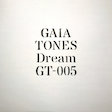 Wow, record of the month right here! This new Gaia Tones twelve-inch is precisely how I want to glide into the warmer months, on a blissed-out and deeply reflective sonic excursion through the humid mist and golden rays of sun. Gaia Tones are a British duo, and this is their fifth EP on their self-titled imprint, and it’s a doozy. The a-side track (they both appear to be named “Dream”, that is if they technically have any names at all) is a wide-sweeping dub with loose percussive limbs, airy tones and a meditative headspace. Imagine if one of those hypnotic, perpetual grooves off the Natural Information Society’s Mandatory Reality was given a proper dub washing, its instrumentation drifting away without fully disintegrating. I swear one of the recurrent sounds on this cut is a wooden boat calmly knocking against the dock, and this track offers a similar sense of calm contemplation and natural beauty. The b-side cut finds a more solid rhythmic footing, with a raw bass pulse, skittering percussion and echoed vocal snippets, and it’s the perfect foil to the meandering delicacy of the a-side. Imagine one of Graham Dunning’s mechanical techno devices joined by Robert Ashley for a record on Demdike Stare’s label and you’re close, or Earthen Sea as remixed by Beatrice Dillon and you might even be closer, but Gaia Tones’ Dream surpasses mere recommended-if-you-like comparisons. Not to be missed!
Wow, record of the month right here! This new Gaia Tones twelve-inch is precisely how I want to glide into the warmer months, on a blissed-out and deeply reflective sonic excursion through the humid mist and golden rays of sun. Gaia Tones are a British duo, and this is their fifth EP on their self-titled imprint, and it’s a doozy. The a-side track (they both appear to be named “Dream”, that is if they technically have any names at all) is a wide-sweeping dub with loose percussive limbs, airy tones and a meditative headspace. Imagine if one of those hypnotic, perpetual grooves off the Natural Information Society’s Mandatory Reality was given a proper dub washing, its instrumentation drifting away without fully disintegrating. I swear one of the recurrent sounds on this cut is a wooden boat calmly knocking against the dock, and this track offers a similar sense of calm contemplation and natural beauty. The b-side cut finds a more solid rhythmic footing, with a raw bass pulse, skittering percussion and echoed vocal snippets, and it’s the perfect foil to the meandering delicacy of the a-side. Imagine one of Graham Dunning’s mechanical techno devices joined by Robert Ashley for a record on Demdike Stare’s label and you’re close, or Earthen Sea as remixed by Beatrice Dillon and you might even be closer, but Gaia Tones’ Dream surpasses mere recommended-if-you-like comparisons. Not to be missed!
Sam Gendel & Antonia Cytrynowicz Live A Little LP (Psychic Hotline)
 Oh, so you’re telling me your girlfriend is really impressed by you? Well did you record a full-length album with her little sister?? Sam Gendel is out here making the rest of us devoted partners look lazy, as in his seemingly round-the-clock recording schedule he found the space to make Live A Little, an album of electronics, synths, sax and guitar accompanied by the voice of his girlfriend’s eleven-year-old sister, Antonia Cytrynowicz. I feel like I still haven’t fully digested Gendel’s massive Fresh Bread from last year, but I couldn’t resist picking up Live A Little; much like the rest of his records, it’s a fresh lil stunner. Amazingly, these aren’t improvisations or rough sketches so much as actual songs, with Cytronowicz singing her sweet lyrics over low-key beats, plucked strings, melodic synths, digital squiggles and Gendel’s ebullient sax, both dry and heavily processed. Cytronowicz apparently isn’t a singer, but you could’ve fooled me, as her voice is emotive and tuneful (and kinda sorta Björk-ish?), following her own melodic path as only children can do. If you want a quick taste, I’d direct you to “Wondering, Waiting”, a cute and inviting coffeehouse groove that’ll shoo away any approaching storm clouds, though I’d imagine you’ll want to hear more than that.
Oh, so you’re telling me your girlfriend is really impressed by you? Well did you record a full-length album with her little sister?? Sam Gendel is out here making the rest of us devoted partners look lazy, as in his seemingly round-the-clock recording schedule he found the space to make Live A Little, an album of electronics, synths, sax and guitar accompanied by the voice of his girlfriend’s eleven-year-old sister, Antonia Cytrynowicz. I feel like I still haven’t fully digested Gendel’s massive Fresh Bread from last year, but I couldn’t resist picking up Live A Little; much like the rest of his records, it’s a fresh lil stunner. Amazingly, these aren’t improvisations or rough sketches so much as actual songs, with Cytronowicz singing her sweet lyrics over low-key beats, plucked strings, melodic synths, digital squiggles and Gendel’s ebullient sax, both dry and heavily processed. Cytronowicz apparently isn’t a singer, but you could’ve fooled me, as her voice is emotive and tuneful (and kinda sorta Björk-ish?), following her own melodic path as only children can do. If you want a quick taste, I’d direct you to “Wondering, Waiting”, a cute and inviting coffeehouse groove that’ll shoo away any approaching storm clouds, though I’d imagine you’ll want to hear more than that.
Tim Goss Afterfly LP (Penultimate Press)
 With the reassessment and canonization of The Shadow Ring in the last decade or so, much of the spotlight has fell on presumed bandleader Graham Lambkin. Understandably so, but Tim Goss was a crucial partner in the group as well, and his recent-ish work as Call Back The Giants has made it clear what a singular and confounding artist he is in his own right. And now, we’ve got the first album under his own name, and it’s a doozy! These are some deep, deep explorations of the synth, but not in the traditional “cosmic” or “industrial” methods. Goss’s songs are rigidly structured and richly melodic, and they offer a strange feeling of domestic unease, weird narratives that remain unresolved or travel in-between realities. Maybe I’d liken it to Idea Fire Company with a beating human heart? Unlike Idea Fire Company, Goss’s vocals do occasionally appear, as if they’ve wandered in off the wrong bus. It often feels like watching a movie of monsters and witches battling, only to have the camera pan and reveal that they’re actually just plastic toys being handled by children in a basement den. It can get pretty groggy, but there are enough lights twinkling through Goss’s fog to maintain a sense of groundedness throughout. I suppose this is all my fancy way of saying this is some supremely weird synth music, not particularly in tune with anything else happening out there, and highly worth checking out.
With the reassessment and canonization of The Shadow Ring in the last decade or so, much of the spotlight has fell on presumed bandleader Graham Lambkin. Understandably so, but Tim Goss was a crucial partner in the group as well, and his recent-ish work as Call Back The Giants has made it clear what a singular and confounding artist he is in his own right. And now, we’ve got the first album under his own name, and it’s a doozy! These are some deep, deep explorations of the synth, but not in the traditional “cosmic” or “industrial” methods. Goss’s songs are rigidly structured and richly melodic, and they offer a strange feeling of domestic unease, weird narratives that remain unresolved or travel in-between realities. Maybe I’d liken it to Idea Fire Company with a beating human heart? Unlike Idea Fire Company, Goss’s vocals do occasionally appear, as if they’ve wandered in off the wrong bus. It often feels like watching a movie of monsters and witches battling, only to have the camera pan and reveal that they’re actually just plastic toys being handled by children in a basement den. It can get pretty groggy, but there are enough lights twinkling through Goss’s fog to maintain a sense of groundedness throughout. I suppose this is all my fancy way of saying this is some supremely weird synth music, not particularly in tune with anything else happening out there, and highly worth checking out.
Kiki Kudo Profile Eterna 12″ (The Trilogy Tapes)
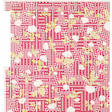 Each time I peep a record on The Trilogy Tapes, I wonder why I don’t seek out this label more often… they’ve got a varied stylistic imprint, guided more by a restlessness of spirit (yet always in the electronic domain) than any particular sub-genre allegiance. This new one from Kiki Kudo is a fresh splash of skin toner to the face, two lengthy tracks (twelve and fifteen minutes each, respectively) that offer a contemplative sandbar between the churning ocean waves of techno and post-dubstep-whatever. “Plotlined” is richly melodic and quick-moving, riding a stutter-step beat across a kaleidoscope of chimes and warm melodic pitch. It has me envisioning Upsammy remixing “E2-E4”, or the sort of thing you accidentally stumble upon on a random NTS show and realize it’s what your life has always been missing. “Space Planar” takes the flip, and it’s slower to reveal itself; opening with a twitchy rhythm and only the slight semblance of other keyboards at play, I’m thinking of Dopplereffekt’s more esoteric tracks, as its clinical aesthetic feels like robots making love in an abandoned airport terminal, which is always a nice place for avant techno to land. The bleeps and bloops arrive about halfway in, followed by some chattering digital maracas and some ingeniously intricate thumping, little sonic rewards for those willing to stick with Kudo’s enigmatic style. Restless, gripping music that is somehow well-suited to calm self-reflection, such is its curious bliss.
Each time I peep a record on The Trilogy Tapes, I wonder why I don’t seek out this label more often… they’ve got a varied stylistic imprint, guided more by a restlessness of spirit (yet always in the electronic domain) than any particular sub-genre allegiance. This new one from Kiki Kudo is a fresh splash of skin toner to the face, two lengthy tracks (twelve and fifteen minutes each, respectively) that offer a contemplative sandbar between the churning ocean waves of techno and post-dubstep-whatever. “Plotlined” is richly melodic and quick-moving, riding a stutter-step beat across a kaleidoscope of chimes and warm melodic pitch. It has me envisioning Upsammy remixing “E2-E4”, or the sort of thing you accidentally stumble upon on a random NTS show and realize it’s what your life has always been missing. “Space Planar” takes the flip, and it’s slower to reveal itself; opening with a twitchy rhythm and only the slight semblance of other keyboards at play, I’m thinking of Dopplereffekt’s more esoteric tracks, as its clinical aesthetic feels like robots making love in an abandoned airport terminal, which is always a nice place for avant techno to land. The bleeps and bloops arrive about halfway in, followed by some chattering digital maracas and some ingeniously intricate thumping, little sonic rewards for those willing to stick with Kudo’s enigmatic style. Restless, gripping music that is somehow well-suited to calm self-reflection, such is its curious bliss.
Living World World 7″ (Iron Lung)
 Wild to think that back in the ’00s, I would’ve struggled to name more than a couple sincerely-great Pittsburgh hardcore bands, and now it seems like one in three great new hardcore bands is based out of the Steel City. Go figure! It’s a beautifully ugly town – I think you can still smoke in bars there, for example – so it makes sense that, with hardcore’s de-localized sonic trends, it’s the perfect breeding ground for burly and unrepentant hardcore-punk such as Living World. They’ve got a rugged sound ripe for Iron Lung’s picking, playing anxiety-riddled hardcore akin to classics like United Mutation, Die Kreuzen and Poison Idea, but with a slightly metallic Euro edge that reminds me of S.H.I.T. and Warthog, too. The distorted vocals add to the off-kilter vibe, resulting in the type of band I’d expect to read a tantalizing description of in a Puszone column in a 1984 issue of Thrasher. EP closer “Ubuntu” is my favorite of the bunch, which opens with a verbal tirade in the spirit of Crucifix before descending into unhinged hardcore slop that sounds like Siege re-interpreting the first Snuky Tate EP.
Wild to think that back in the ’00s, I would’ve struggled to name more than a couple sincerely-great Pittsburgh hardcore bands, and now it seems like one in three great new hardcore bands is based out of the Steel City. Go figure! It’s a beautifully ugly town – I think you can still smoke in bars there, for example – so it makes sense that, with hardcore’s de-localized sonic trends, it’s the perfect breeding ground for burly and unrepentant hardcore-punk such as Living World. They’ve got a rugged sound ripe for Iron Lung’s picking, playing anxiety-riddled hardcore akin to classics like United Mutation, Die Kreuzen and Poison Idea, but with a slightly metallic Euro edge that reminds me of S.H.I.T. and Warthog, too. The distorted vocals add to the off-kilter vibe, resulting in the type of band I’d expect to read a tantalizing description of in a Puszone column in a 1984 issue of Thrasher. EP closer “Ubuntu” is my favorite of the bunch, which opens with a verbal tirade in the spirit of Crucifix before descending into unhinged hardcore slop that sounds like Siege re-interpreting the first Snuky Tate EP.
David Nance Pulverized And Slightly Peaced LP (Petty Bunco)
 So I might be getting part of this wrong (it was initially explained to me while I was driving and I keep my focus on the road), but back in 2017 David Nance recorded an album at home in Omaha and then shelved it, as a slicker re-recording of the same songs came out in the form of the Trouble In Mind full-length Peaced And Slightly Pulverized. Years later, with all the dust settled, Petty Bunco is shedding light on that initial recording, released with the understandably-confusing title of Pulverized And Slightly Peaced. A diligent reviewer would probably spend some time with that Trouble In Mind release and take notes comparing the two, but I’ve only got so many hours in the day I can set aside for any given rock n’ roller, and honestly I can’t see how slicker studio versions of these songs would offer me a higher form of enjoyment than what Nance is throwing down here. I know he has a million releases out at this point (and I’ve only heard a small handful), but this recording goes a long way to explain why so many cool underground rock labels have been clamoring for a piece of the action. He’s not doing any one thing here so much as leaving his Midwestern mark across a wide swath of rock’s holiest paths: charming indie-rock, zippy garage-rock, zoned-out psych (the sprawling b-side encompassing “Amethyst”), loose Americana, even a little nervous proto-punk action for good measure. He clearly knows his Stooges and Neil Young records, but they’re merely the start of Nance’s conversation, not a stylistic dead-end. Can we get a Change.org petition going to team him up with the equally-beloved guitar impresario whose name his is often confused with, Bill Nace, for the duo record of the year? I think we’re ready.
So I might be getting part of this wrong (it was initially explained to me while I was driving and I keep my focus on the road), but back in 2017 David Nance recorded an album at home in Omaha and then shelved it, as a slicker re-recording of the same songs came out in the form of the Trouble In Mind full-length Peaced And Slightly Pulverized. Years later, with all the dust settled, Petty Bunco is shedding light on that initial recording, released with the understandably-confusing title of Pulverized And Slightly Peaced. A diligent reviewer would probably spend some time with that Trouble In Mind release and take notes comparing the two, but I’ve only got so many hours in the day I can set aside for any given rock n’ roller, and honestly I can’t see how slicker studio versions of these songs would offer me a higher form of enjoyment than what Nance is throwing down here. I know he has a million releases out at this point (and I’ve only heard a small handful), but this recording goes a long way to explain why so many cool underground rock labels have been clamoring for a piece of the action. He’s not doing any one thing here so much as leaving his Midwestern mark across a wide swath of rock’s holiest paths: charming indie-rock, zippy garage-rock, zoned-out psych (the sprawling b-side encompassing “Amethyst”), loose Americana, even a little nervous proto-punk action for good measure. He clearly knows his Stooges and Neil Young records, but they’re merely the start of Nance’s conversation, not a stylistic dead-end. Can we get a Change.org petition going to team him up with the equally-beloved guitar impresario whose name his is often confused with, Bill Nace, for the duo record of the year? I think we’re ready.
ÖPNV Deutsch Funk Revolte LP (Phantom)
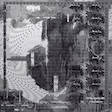 Surely I’m not the only one who sees that band name and immediately thinks Op Ivy, right? It’s such a pleasant association for me that I was willing to allow ÖPNV a little ska-punk if they wanted, but this Berlin post-punk group clearly have no interest in any form of skanking. Theirs is a very sour and ostentatious form of robotic post-punk, delightfully free from guitars or any sort of traditional rock behavior. Rather, Deutsch Funk Revolte is equal parts disturbed and disturbing, minimal and unhinged, very much in the tradition of Nervous Gender, Kosmonautentraum, Palais Schaumburg and Cabaret Voltaire. Most songs are comprised of thuddy drumming, dubby bass, electronic bleeps/squelches and vocals acting as a disaffected tour guide to the proceedings. Pretty classic conceit, but it’s a style I personally relish, especially when performed with as much artful grit as ÖPNV display here. They’re willing to try interesting things with the form (unusual bass-lines, playful dub properties and so on) without feeling either too musical or polished. If they’re not already friends with Lavender Hex, a similarly (if further out-there) experimental dub-minded post-punk group from Berlin, they out to consider sending a congenial DM and making that connection.
Surely I’m not the only one who sees that band name and immediately thinks Op Ivy, right? It’s such a pleasant association for me that I was willing to allow ÖPNV a little ska-punk if they wanted, but this Berlin post-punk group clearly have no interest in any form of skanking. Theirs is a very sour and ostentatious form of robotic post-punk, delightfully free from guitars or any sort of traditional rock behavior. Rather, Deutsch Funk Revolte is equal parts disturbed and disturbing, minimal and unhinged, very much in the tradition of Nervous Gender, Kosmonautentraum, Palais Schaumburg and Cabaret Voltaire. Most songs are comprised of thuddy drumming, dubby bass, electronic bleeps/squelches and vocals acting as a disaffected tour guide to the proceedings. Pretty classic conceit, but it’s a style I personally relish, especially when performed with as much artful grit as ÖPNV display here. They’re willing to try interesting things with the form (unusual bass-lines, playful dub properties and so on) without feeling either too musical or polished. If they’re not already friends with Lavender Hex, a similarly (if further out-there) experimental dub-minded post-punk group from Berlin, they out to consider sending a congenial DM and making that connection.
Pitva S/T LP (Static Age Musik)
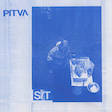 Static Age has been a reliable source for provocative punk and punk-related music over the last few years – Berlin’s answer to La Vida Es Un Mus, let’s say – and seeing as I still haven’t gotten the metallic taste of that Urin single out of my mouth, I figured I’d check out Vienna’s Pitva and their full-length debut. Pitva do that funny thing that I really enjoy, which is when a band doesn’t simply use their own name as the title, they actually go ahead and put “self titled” or “S/T” on the cover. Gloriously unnecessary! Pitva aren’t remotely as hardcore-sounding as Urin, but they are certainly filthy and wretched all the same – this is music that sounds like it remained undisturbed in a dingy attic for years, covered in dust, and now that it’s been discovered it’s going to possess you all the way to hell. Reminds me of the first Iceage album were it completely devoid of tunefulness, Trop Tard’s 1988 album played at double speed, and Rudimentary Peni if they fully embraced the haunted-house vibe while writing the simplest songs they could muster. Feeble, noisy songs that would snap under any stress but are still more unsettling and menacing than any given mosh-core band in hockey jerseys.
Static Age has been a reliable source for provocative punk and punk-related music over the last few years – Berlin’s answer to La Vida Es Un Mus, let’s say – and seeing as I still haven’t gotten the metallic taste of that Urin single out of my mouth, I figured I’d check out Vienna’s Pitva and their full-length debut. Pitva do that funny thing that I really enjoy, which is when a band doesn’t simply use their own name as the title, they actually go ahead and put “self titled” or “S/T” on the cover. Gloriously unnecessary! Pitva aren’t remotely as hardcore-sounding as Urin, but they are certainly filthy and wretched all the same – this is music that sounds like it remained undisturbed in a dingy attic for years, covered in dust, and now that it’s been discovered it’s going to possess you all the way to hell. Reminds me of the first Iceage album were it completely devoid of tunefulness, Trop Tard’s 1988 album played at double speed, and Rudimentary Peni if they fully embraced the haunted-house vibe while writing the simplest songs they could muster. Feeble, noisy songs that would snap under any stress but are still more unsettling and menacing than any given mosh-core band in hockey jerseys.
Rigorous Institution Cainsmarsh LP (Black Water)
 Is it weird that of all the strains of underground punk to currently exist, anarcho-crust seems to be having a collective moment of creative greatness? Straw Man Army, Tower 7 and Horrendous 3D sound nothing alike, but they come to represent a similar outlook on the usefulness of punk in our current era, and I’m adding Portland’s Rigorous Institution to the list as well. I dug their debut EP, but Cainsmarsh is even better, a righteous, unique form of fog-enshrouded stench-core that goes all out for its entirety. It’s a darkly dramatic album, reveling in anguish and misery, presented as a fantasy epic but based firmly in reality. The riffs are purposely plodding and dour, synths thicken the atmosphere, and the vocalist doesn’t sound like a human being so much as an ancient wizard, gleefully foretelling our collective doom with a wave of his knotted staff. My description sounds a little cosplay-friendly, I’m sure, but this album hits so good, and makes me wonder how mad Southern Lord is to not have a band as authentically, boldly crust-metal as Rigorous Institution on their roster. If the Cryptkeeper had a guest column in Maximumrocknroll, I’m certain he’d sing the praises of Cainsmarch, and if I ever get to witness this band perform “Laughter” live, I’m gonna push-pit so hard that my hair entangles into the crust-punk’s next to me, a veritable rat-king of punk aggression. Just you wait!
Is it weird that of all the strains of underground punk to currently exist, anarcho-crust seems to be having a collective moment of creative greatness? Straw Man Army, Tower 7 and Horrendous 3D sound nothing alike, but they come to represent a similar outlook on the usefulness of punk in our current era, and I’m adding Portland’s Rigorous Institution to the list as well. I dug their debut EP, but Cainsmarsh is even better, a righteous, unique form of fog-enshrouded stench-core that goes all out for its entirety. It’s a darkly dramatic album, reveling in anguish and misery, presented as a fantasy epic but based firmly in reality. The riffs are purposely plodding and dour, synths thicken the atmosphere, and the vocalist doesn’t sound like a human being so much as an ancient wizard, gleefully foretelling our collective doom with a wave of his knotted staff. My description sounds a little cosplay-friendly, I’m sure, but this album hits so good, and makes me wonder how mad Southern Lord is to not have a band as authentically, boldly crust-metal as Rigorous Institution on their roster. If the Cryptkeeper had a guest column in Maximumrocknroll, I’m certain he’d sing the praises of Cainsmarch, and if I ever get to witness this band perform “Laughter” live, I’m gonna push-pit so hard that my hair entangles into the crust-punk’s next to me, a veritable rat-king of punk aggression. Just you wait!
Skid City Greetings From Skid City LP (Shipping Steel)
 Sweet young Skids ain’t Skids no more: this Melbourne rock unit has changed their name from The Skids to Skid City, in case you were under the misunderstanding that they played rock music with the suburbs in mind. Following a couple singles, their formula has mostly stayed the same, which is boots-on-the-ground, hard-rockin’ garage-punk with minimal frills. Don’t even expect much in the way of guitar solos, and there isn’t a keyboard in sight; Skid City churn out tune after tune of driving, gruff rock music in the vein of Turbonegro, Murder City Devils and Cosmic Psychos. Makes me imagine a non-existent timeline wherein Headache Records existed during CBGB’s first wave of underground rock. The energy is there, but not in an unrestrained way, as this music is better suited to sitting at a bar and occasionally pumping a fist than circle pits and stage dives. From the sound of vocalist Zeke’s voice, he’s too run down and strained to do much more than stand in place anyway, so gravelly is his tone. I don’t care how many techno producers in floppy pastel shirts Australia produces, it’s a rock n’ roll country first and foremost and Skid City have located their sliver of land within it.
Sweet young Skids ain’t Skids no more: this Melbourne rock unit has changed their name from The Skids to Skid City, in case you were under the misunderstanding that they played rock music with the suburbs in mind. Following a couple singles, their formula has mostly stayed the same, which is boots-on-the-ground, hard-rockin’ garage-punk with minimal frills. Don’t even expect much in the way of guitar solos, and there isn’t a keyboard in sight; Skid City churn out tune after tune of driving, gruff rock music in the vein of Turbonegro, Murder City Devils and Cosmic Psychos. Makes me imagine a non-existent timeline wherein Headache Records existed during CBGB’s first wave of underground rock. The energy is there, but not in an unrestrained way, as this music is better suited to sitting at a bar and occasionally pumping a fist than circle pits and stage dives. From the sound of vocalist Zeke’s voice, he’s too run down and strained to do much more than stand in place anyway, so gravelly is his tone. I don’t care how many techno producers in floppy pastel shirts Australia produces, it’s a rock n’ roll country first and foremost and Skid City have located their sliver of land within it.
Spread Joy II LP (Feel It)
 It’s been about a year since Chicago’s Spread Joy established their high-energy post-punk with their debut, and now they’ve returned (maybe a dozen shows later) with II, continuing right where they left off. “Dancy post-punk” has been a crowded field since James Murphy first DJed a Liquid Liquid twelve-inch in 2001, which makes it a particularly tricky style to distinguish oneself within, and if Spread Joy hadn’t fully done so after their appreciable debut, II firmly establishes their top American standing. The drums carve their own little initials into each song, a commendable mix of taut and spicy; the bass is a constant flurry of funk and groove; the guitar understands it’s the least important part (which is often the hardest part, knowing guitarists), and the singer is an absolute loon, shaming all the singers who have half as much fun in front of a mic. Some songs lean heavily in a Contortions anti-groove, others flail like some of Lumpy Records’ dancier offerings, and at least two songs nod pretty distinctly towards Blur’s “Song 2”, a nice little curveball of catchiness in an otherwise strictly-underground affair. Most importantly for this style, Spread Joy sound like they’re truly being themselves and having a ball in the process, really embracing their chosen moniker in a time when it seems like everything is being spread besides joy. It’s appreciated!
It’s been about a year since Chicago’s Spread Joy established their high-energy post-punk with their debut, and now they’ve returned (maybe a dozen shows later) with II, continuing right where they left off. “Dancy post-punk” has been a crowded field since James Murphy first DJed a Liquid Liquid twelve-inch in 2001, which makes it a particularly tricky style to distinguish oneself within, and if Spread Joy hadn’t fully done so after their appreciable debut, II firmly establishes their top American standing. The drums carve their own little initials into each song, a commendable mix of taut and spicy; the bass is a constant flurry of funk and groove; the guitar understands it’s the least important part (which is often the hardest part, knowing guitarists), and the singer is an absolute loon, shaming all the singers who have half as much fun in front of a mic. Some songs lean heavily in a Contortions anti-groove, others flail like some of Lumpy Records’ dancier offerings, and at least two songs nod pretty distinctly towards Blur’s “Song 2”, a nice little curveball of catchiness in an otherwise strictly-underground affair. Most importantly for this style, Spread Joy sound like they’re truly being themselves and having a ball in the process, really embracing their chosen moniker in a time when it seems like everything is being spread besides joy. It’s appreciated!
The Submissives Wanna Be Your Thing LP (Bruit Direct Disques)
 Kind of ironic that when I’m listening to records on a broken, off-time turntable, I hate it, but when I’m listening to records that sound like they’re being played on a broken, off-time turntable, I love it! Case in point is this album from The Submissives (aka Montreal’s Deb Edison), who apparently recorded and produced Wanna Be Your Thing all on her lonesome. File under shambolic, K Records-indebted indie-pop, but I’ll be damned if Edison’s guitars aren’t gloriously out of whack, vacillating between in-tune and out-of-tune often in the same singular chord that’s struck. Brilliant! The guitars (both strummed and tickled) are sour-sweet throughout, as if they stepped in buckets of The Velvet Underground, The Shaggs and Tori Kudo and tracked them all over the carpet. Transport Sarah Mary Chadwick to the Fuck Off Records scene of Instant Automatons and The Door & The Window and it might result in a similarly pleasing DIY pop confection as Wanna Be Your Thing. I can’t tell if The Submissives are unhinged or sincere or horny or taking the piss, and it’s therein that the magic lies. Every time I start grumbling about solo projects usurping the focus from multi-membered bands, a record like this comes along to make me realize some artists are best left to themselves, wild and uncompromised.
Kind of ironic that when I’m listening to records on a broken, off-time turntable, I hate it, but when I’m listening to records that sound like they’re being played on a broken, off-time turntable, I love it! Case in point is this album from The Submissives (aka Montreal’s Deb Edison), who apparently recorded and produced Wanna Be Your Thing all on her lonesome. File under shambolic, K Records-indebted indie-pop, but I’ll be damned if Edison’s guitars aren’t gloriously out of whack, vacillating between in-tune and out-of-tune often in the same singular chord that’s struck. Brilliant! The guitars (both strummed and tickled) are sour-sweet throughout, as if they stepped in buckets of The Velvet Underground, The Shaggs and Tori Kudo and tracked them all over the carpet. Transport Sarah Mary Chadwick to the Fuck Off Records scene of Instant Automatons and The Door & The Window and it might result in a similarly pleasing DIY pop confection as Wanna Be Your Thing. I can’t tell if The Submissives are unhinged or sincere or horny or taking the piss, and it’s therein that the magic lies. Every time I start grumbling about solo projects usurping the focus from multi-membered bands, a record like this comes along to make me realize some artists are best left to themselves, wild and uncompromised.
TSVI & Loraine James 053 12″ (AD 93)
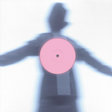 Back when the AD 93 label was calling itself Whities, I was scooping up every new release with enthusiasm and wonderment, but somewhere after the name change to AD 93 I found myself drifting… the creative, wandering minds the label had gravitated towards often were a little too esoteric or high-minded for my tastes. Gimme the inventive and straight-up catchy beats, you know? I never stopped respecting the label, though, and maybe there’s some re-investigation to be done, as this new collaboration between the London producers TSVI and Loraine James is a pleasing display of sonic contrasts. I can’t rightly say who is contributing what, but across these five tracks, languid melodic keys and uplifting ambient drift are pelted with scattershot snippets of jungle rhythms and IDM beats, resulting in a sort of sunshower effect – the beats scuff you up a bit, but the weather conditions are so optimal that it feels like a perk rather than punishment. Their minds shift from the choral, Jay Glass Dubs-esque “Awaiting” to the unfocused techno thwop of “Eternal” with ease, and as a listener I’m right there with them. The effervescence found within 053 is a constant, no matter which beats (if any) are deployed, with an almost new-age sort of presence (sans the yoga pants or herbal tea). You know how some of those bougie botanical probiotic seltzers are crap, and some are actually worth the exorbitant price tag? 053 is worth every penny.
Back when the AD 93 label was calling itself Whities, I was scooping up every new release with enthusiasm and wonderment, but somewhere after the name change to AD 93 I found myself drifting… the creative, wandering minds the label had gravitated towards often were a little too esoteric or high-minded for my tastes. Gimme the inventive and straight-up catchy beats, you know? I never stopped respecting the label, though, and maybe there’s some re-investigation to be done, as this new collaboration between the London producers TSVI and Loraine James is a pleasing display of sonic contrasts. I can’t rightly say who is contributing what, but across these five tracks, languid melodic keys and uplifting ambient drift are pelted with scattershot snippets of jungle rhythms and IDM beats, resulting in a sort of sunshower effect – the beats scuff you up a bit, but the weather conditions are so optimal that it feels like a perk rather than punishment. Their minds shift from the choral, Jay Glass Dubs-esque “Awaiting” to the unfocused techno thwop of “Eternal” with ease, and as a listener I’m right there with them. The effervescence found within 053 is a constant, no matter which beats (if any) are deployed, with an almost new-age sort of presence (sans the yoga pants or herbal tea). You know how some of those bougie botanical probiotic seltzers are crap, and some are actually worth the exorbitant price tag? 053 is worth every penny.
Valley Of Weights Valley Of Weights 2xLP (Skell / Sool Recordings)
 Upstate New York, Connecticut, western Massachusetts.. they just sit around playing guitar all day up there, don’t they? I love big cities, but the idea of having some crusty barn to set up all your gear with your friends and leisurely hammer away at rock music sounds pretty darn appealing. Valley Of Weights are one such project, apparently hailing from upstate New York and featuring personnel from groups like Burnt Hills, Sky Furrows and even a Vatican Commando! They decided to enter the underground conversation with a debut double LP, full of loosely scripted rock songs and deeper forays into improvised psych-rock burnouts. Pretty straightforward and by-the-books, and certainly age-appropriate (Gen Z they ain’t), like the type of upstanding local band that gets to open for Mission Of Burma, Dinosaur Jr or Mudhoney once or twice a year. No wild freakouts, no unlikely combination of effects pedals or uncommon percussive devices, just moderately energetic, ’90s style indie-rock that cuts to the core of the matter. We could all be so lucky to find ourselves in Valley Of Weights’ shoes someday.
Upstate New York, Connecticut, western Massachusetts.. they just sit around playing guitar all day up there, don’t they? I love big cities, but the idea of having some crusty barn to set up all your gear with your friends and leisurely hammer away at rock music sounds pretty darn appealing. Valley Of Weights are one such project, apparently hailing from upstate New York and featuring personnel from groups like Burnt Hills, Sky Furrows and even a Vatican Commando! They decided to enter the underground conversation with a debut double LP, full of loosely scripted rock songs and deeper forays into improvised psych-rock burnouts. Pretty straightforward and by-the-books, and certainly age-appropriate (Gen Z they ain’t), like the type of upstanding local band that gets to open for Mission Of Burma, Dinosaur Jr or Mudhoney once or twice a year. No wild freakouts, no unlikely combination of effects pedals or uncommon percussive devices, just moderately energetic, ’90s style indie-rock that cuts to the core of the matter. We could all be so lucky to find ourselves in Valley Of Weights’ shoes someday.
Ricardo Villalobos & Samuel Rohrer Microgestures 2×12″ (Arjunamusic)
 For as much as I profess to love Ricardo Villalobos (once every evening before bed as I stare into my bathroom mirror), I am sheepish to admit that it’s been a couple years since I seriously peeped any of his newer records. He kinda lost me after Empirical House, or perhaps I felt I had already such a staggering wealth of his material to lose myself in, but I saw that he had this new double EP with Samuel Rohrer (not their first collaborative effort, apparently) and decided to check back in. I was prepared for some richly refracted soundscaping and technologically-advanced processing with rhythms beyond the cognitive powers of my feeble brain, but much to my delight, these four side-long tracks are glitchy and minimal tech-house straight out of Villalobos’s early ’00s playbook. Not bad! Tiny warm-sounding drum machines cycle forward, and the slightest and subtlest shards of electronic interference, synthetic manipulations and indeterminate effects grow in the cracks. At a distance, it’s mostly repetitive skeletal rhythms and electronic gurgling, but if you dare lean over the edge into these tracks, there’s a rich world of activity and color to be enjoyed, much like a drop of pond water under a classroom microscope. Thrilling to know Villalobos and friends are still out there making the music they are compelled to make, trends or cultural shifts be damned. I love it.
For as much as I profess to love Ricardo Villalobos (once every evening before bed as I stare into my bathroom mirror), I am sheepish to admit that it’s been a couple years since I seriously peeped any of his newer records. He kinda lost me after Empirical House, or perhaps I felt I had already such a staggering wealth of his material to lose myself in, but I saw that he had this new double EP with Samuel Rohrer (not their first collaborative effort, apparently) and decided to check back in. I was prepared for some richly refracted soundscaping and technologically-advanced processing with rhythms beyond the cognitive powers of my feeble brain, but much to my delight, these four side-long tracks are glitchy and minimal tech-house straight out of Villalobos’s early ’00s playbook. Not bad! Tiny warm-sounding drum machines cycle forward, and the slightest and subtlest shards of electronic interference, synthetic manipulations and indeterminate effects grow in the cracks. At a distance, it’s mostly repetitive skeletal rhythms and electronic gurgling, but if you dare lean over the edge into these tracks, there’s a rich world of activity and color to be enjoyed, much like a drop of pond water under a classroom microscope. Thrilling to know Villalobos and friends are still out there making the music they are compelled to make, trends or cultural shifts be damned. I love it.
Niklas Wandt I Wandt To Believe 12″ (Animals Dancing)
 Who said Germans have no sense of humor? I’ve been keeping an eye out for Niklas Wandt ever since his fantastic collab with Wolf Müller dropped in 2018, and this new four-track EP with a dumb pun for a title seemed like the perfect place to check in. His taste in dance music is clearly omnivorous, as these tracks run the gamut of lighthearted dance music, from vocodered sleaze-pop to sunshine-y stepping house and cosmic, retro electro. While kind of all over the place, it never feels like he’s reaching too far, or losing sight of the ultimate goal: an infectious eternal groove to shake butts and elevate minds. “Im Verborgenen” is probably my favorite cut of the bunch, and also the slowest, grinding hard on an EBM groove with lasers firing from all angles and deadpan German vocals. Considering the glaring dearth of in-person parties, social events and general good vibes of recent times, it’s reassuring to be kissed with Wandt’s playful and expansive dance tracks, honoring a world where communal fun and ebullient grooves are granted top priority.
Who said Germans have no sense of humor? I’ve been keeping an eye out for Niklas Wandt ever since his fantastic collab with Wolf Müller dropped in 2018, and this new four-track EP with a dumb pun for a title seemed like the perfect place to check in. His taste in dance music is clearly omnivorous, as these tracks run the gamut of lighthearted dance music, from vocodered sleaze-pop to sunshine-y stepping house and cosmic, retro electro. While kind of all over the place, it never feels like he’s reaching too far, or losing sight of the ultimate goal: an infectious eternal groove to shake butts and elevate minds. “Im Verborgenen” is probably my favorite cut of the bunch, and also the slowest, grinding hard on an EBM groove with lasers firing from all angles and deadpan German vocals. Considering the glaring dearth of in-person parties, social events and general good vibes of recent times, it’s reassuring to be kissed with Wandt’s playful and expansive dance tracks, honoring a world where communal fun and ebullient grooves are granted top priority.
Арлекин Извор на главоболките LP (Опачина)
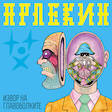 Let’s kick off the month of May the best way I know how: with some steaming hot Macedonian noise-rock! Surely there must be some common link to the disgruntled working men of both America’s metropolitan outskirts and northern Macedonia, as the nauseous, knuckle-dragging thud of Арлекин is perfectly in step with bands like Kilslug, Eyehategod and Cows. These songs carry a veneer of intentional ugliness, but when you peel that away there’s a sincere ugliness at their core as well, from the loping basslines that snub their nose at melody to the varied levels of vocal constipation. Reminds me of the earliest Billy Bao records, those few moments when they were willing to commit to something as simple as a song, or Upsidedown Cross if they worked their day-jobs in a forest instead of a factory. Or, Unsane if they used still images from Impractical Jokers on their record covers instead of crime scene photos. Enjoyable tunes, but my favorite part might actually be the large comic book that acts as the record’s insert, a twisted and wordless tale of some cretinous superhero’s entire lifespan from birth to death and beyond, with lots of meticulously-penciled private-parts and drugs along the way. Worthy of a proper Fantagraphics coffee-table release, I’d say. It’s all illustrated by Bruno of Арлекин, who has a bright future in comics if this whole rock band thing ever fizzles out.
Let’s kick off the month of May the best way I know how: with some steaming hot Macedonian noise-rock! Surely there must be some common link to the disgruntled working men of both America’s metropolitan outskirts and northern Macedonia, as the nauseous, knuckle-dragging thud of Арлекин is perfectly in step with bands like Kilslug, Eyehategod and Cows. These songs carry a veneer of intentional ugliness, but when you peel that away there’s a sincere ugliness at their core as well, from the loping basslines that snub their nose at melody to the varied levels of vocal constipation. Reminds me of the earliest Billy Bao records, those few moments when they were willing to commit to something as simple as a song, or Upsidedown Cross if they worked their day-jobs in a forest instead of a factory. Or, Unsane if they used still images from Impractical Jokers on their record covers instead of crime scene photos. Enjoyable tunes, but my favorite part might actually be the large comic book that acts as the record’s insert, a twisted and wordless tale of some cretinous superhero’s entire lifespan from birth to death and beyond, with lots of meticulously-penciled private-parts and drugs along the way. Worthy of a proper Fantagraphics coffee-table release, I’d say. It’s all illustrated by Bruno of Арлекин, who has a bright future in comics if this whole rock band thing ever fizzles out.
Bunzinelli Atacama 12″ (Neubau)
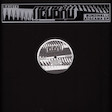 Always an exciting time when a new Neubau twelve-inch makes its way to my household, and as I had already prepped for Bunzinelli’s arrival by peeping his other 2021 single, I was fully primed for Atacama. I love the Neubau sound, a slowed-down techno lurch that leans in industrial, synth-pop and house directions depending on the particular artist’s predilection, and “Atacama” fits in perfectly. Its slow, black-lit groove uncoils like a snake in a dungeon, and the ritualistic percussion loop lends the vibe a “Knight Rider uncovers a cult sacrifice in progress” angle. “Anxiety Attack” is just as lugubrious and sour, and not like any anxiety attack I’ve ever witnessed – this melange of occult industrial sounds and sampled vocal recitation has me imagining Kerridge recording a track for Galakthorrö. The Montreal producer ends the EP with “Ladakh”, a continuation of the mood established with “Anxiety Attack” retooled with a New Beat acid groove and an actual dance-floor presence, morbid though it may be. No upcoming Neubau releases are being advertised at the moment, but I can’t wait for whatever’s next.
Always an exciting time when a new Neubau twelve-inch makes its way to my household, and as I had already prepped for Bunzinelli’s arrival by peeping his other 2021 single, I was fully primed for Atacama. I love the Neubau sound, a slowed-down techno lurch that leans in industrial, synth-pop and house directions depending on the particular artist’s predilection, and “Atacama” fits in perfectly. Its slow, black-lit groove uncoils like a snake in a dungeon, and the ritualistic percussion loop lends the vibe a “Knight Rider uncovers a cult sacrifice in progress” angle. “Anxiety Attack” is just as lugubrious and sour, and not like any anxiety attack I’ve ever witnessed – this melange of occult industrial sounds and sampled vocal recitation has me imagining Kerridge recording a track for Galakthorrö. The Montreal producer ends the EP with “Ladakh”, a continuation of the mood established with “Anxiety Attack” retooled with a New Beat acid groove and an actual dance-floor presence, morbid though it may be. No upcoming Neubau releases are being advertised at the moment, but I can’t wait for whatever’s next.
Employee Hold Music Vol. 2 LP (Beatbude)
 Tipped off to Employee by a friend after a lively conversation discussing the merits of Gerry Franke’s new album, as Employee bears some (real or imagined?) familial relation to Franke. Whereas Franke’s music dabbles in cheese with precaution, Employee straight-up cannonballs into the nacho dip with Hold Music Vol. 2. These instrumentals were clearly crafted with corporate hold music in mind, and if that’s the assignment given, he gets an A+. I’m reminded of certain Donkey Kong Country themes, the soundtrack to any given Andy Sidaris action-thriller, and in the case of “Romantic Relax”, a beat Too Short would’ve used on his Cocktails album. Probably some debt is owed to James Ferraro’s Far Side Virtual as well, although Ferraro imagines an alternate corporate reality whereas Employee has pieced together a shockingly accurate and loving recreation of the business Muzak of our present time and place. I think we’re all so far beyond irony-poisoned at this point that intentionally groan-inducing corniness such as this doesn’t have any unsettling effects, allowing music like this to be judged on its own merits. This might be why I find Hold Music Vol. 2 to be a soothing and engaging album, especially knowing that listening is my own personal choice, not a situation I’m forced into as I wait for my health insurance company to pick up the line.
Tipped off to Employee by a friend after a lively conversation discussing the merits of Gerry Franke’s new album, as Employee bears some (real or imagined?) familial relation to Franke. Whereas Franke’s music dabbles in cheese with precaution, Employee straight-up cannonballs into the nacho dip with Hold Music Vol. 2. These instrumentals were clearly crafted with corporate hold music in mind, and if that’s the assignment given, he gets an A+. I’m reminded of certain Donkey Kong Country themes, the soundtrack to any given Andy Sidaris action-thriller, and in the case of “Romantic Relax”, a beat Too Short would’ve used on his Cocktails album. Probably some debt is owed to James Ferraro’s Far Side Virtual as well, although Ferraro imagines an alternate corporate reality whereas Employee has pieced together a shockingly accurate and loving recreation of the business Muzak of our present time and place. I think we’re all so far beyond irony-poisoned at this point that intentionally groan-inducing corniness such as this doesn’t have any unsettling effects, allowing music like this to be judged on its own merits. This might be why I find Hold Music Vol. 2 to be a soothing and engaging album, especially knowing that listening is my own personal choice, not a situation I’m forced into as I wait for my health insurance company to pick up the line.
Exek Advertise Here LP (Castle Face)
 Finally, for their fifth album, Melbourne’s Exek signed with Castle Face and delivered the prog-metal opus we’ve been waiting for. Just kidding! Advertise Here sounds as much like Exek as any of the Exek records that preceded it, a comforting sensation if not a particularly mindblowing one. They found their specific lane early on – softshell indie post-punk drenched in dub properties – and continue to stick with it, refining the songwriting, tuning up the rhythm section, working on improving the little details and expanding ever so slightly while remaining firmly within their standard aesthetic guidelines. I’m certainly a fan, and while I might have a little difficulty placing any given Exek song to its respective album, I’d be able to pick out any given Exek song among dozens of their post-punk peers. Bandleader/vocalist Albert Wolski’s voice is immediately recognizable, somewhere in the tradition of Mark E. Smith and Stephen Malkmus but distinctly Australian and bashful. He often sings as if he’s asking you to dance but afraid to make direct eye contact while doing so, and as his vocals are usually double-tracked, it can feel like a creepy set of twins doing the asking. If you haven’t checked out Exek already, you’re really overdue, but if you are already two or four albums deep, no need to hurry over to Advertise Here – it’ll be ready when you are.
Finally, for their fifth album, Melbourne’s Exek signed with Castle Face and delivered the prog-metal opus we’ve been waiting for. Just kidding! Advertise Here sounds as much like Exek as any of the Exek records that preceded it, a comforting sensation if not a particularly mindblowing one. They found their specific lane early on – softshell indie post-punk drenched in dub properties – and continue to stick with it, refining the songwriting, tuning up the rhythm section, working on improving the little details and expanding ever so slightly while remaining firmly within their standard aesthetic guidelines. I’m certainly a fan, and while I might have a little difficulty placing any given Exek song to its respective album, I’d be able to pick out any given Exek song among dozens of their post-punk peers. Bandleader/vocalist Albert Wolski’s voice is immediately recognizable, somewhere in the tradition of Mark E. Smith and Stephen Malkmus but distinctly Australian and bashful. He often sings as if he’s asking you to dance but afraid to make direct eye contact while doing so, and as his vocals are usually double-tracked, it can feel like a creepy set of twins doing the asking. If you haven’t checked out Exek already, you’re really overdue, but if you are already two or four albums deep, no need to hurry over to Advertise Here – it’ll be ready when you are.
The False Berries The False Berries 12″ (Sloth Mate)
 The False… Berries? You know what, screw it, any band wants to call themselves The False Berries, more power to ’em. Definitely the mark of a band on their entirely own trip, which I’ve confirmed to be the case after spinning this debut EP. I’m guessing there is some sort of connection with Violent Change (the only other artist to be released by Sloth Mate), and there’s an adventurousness to the music here that Violent Change share, a direct upending of reasonable conventions while still kind of playing somewhat conventional music. In the case of The False Berries, they split the material here between homespun ambient techno and softhearted indie-pop. This means that cloud-parting pop-ambient sounds reminiscent of DJ Healer are nuzzled up against subtle guitar songs befitting Howard Hello or Heatmiser. Weird combo, but perhaps not weird, since the emotional tone of the record is fairly constant, one of melancholic anticipation, the sort of thing they should pump into hospital waiting rooms to temper the excitement of newborns and ease the pain of loss. Some of these tracks fall closer to sketches than songs, but that’s kind of what makes The False Berries so appealing – they seem to follow their hearts, even if it means allowing synth chords to ripple over and over without any sense of destination (see “The False Berries”). Like the name implies, they appear juicy and ripe even if they’re made of plastic.
The False… Berries? You know what, screw it, any band wants to call themselves The False Berries, more power to ’em. Definitely the mark of a band on their entirely own trip, which I’ve confirmed to be the case after spinning this debut EP. I’m guessing there is some sort of connection with Violent Change (the only other artist to be released by Sloth Mate), and there’s an adventurousness to the music here that Violent Change share, a direct upending of reasonable conventions while still kind of playing somewhat conventional music. In the case of The False Berries, they split the material here between homespun ambient techno and softhearted indie-pop. This means that cloud-parting pop-ambient sounds reminiscent of DJ Healer are nuzzled up against subtle guitar songs befitting Howard Hello or Heatmiser. Weird combo, but perhaps not weird, since the emotional tone of the record is fairly constant, one of melancholic anticipation, the sort of thing they should pump into hospital waiting rooms to temper the excitement of newborns and ease the pain of loss. Some of these tracks fall closer to sketches than songs, but that’s kind of what makes The False Berries so appealing – they seem to follow their hearts, even if it means allowing synth chords to ripple over and over without any sense of destination (see “The False Berries”). Like the name implies, they appear juicy and ripe even if they’re made of plastic.
Gerry Franke Found Myself Or Just I’m Dead LP (Tax Free)
 Tax Free is officially on my radar, following a couple of hot ones from Jürgen Ratan and Iris, so I saw no reason not to check out Gerry Franke’s new album. He’s got a couple of prior full-lengths on the Tax Free label, but the strikingly titled Found Myself Or Just I’m Dead is my first encounter. I’m not sure what I was expecting – something closer to noise or techno, perhaps – but while these songs are not what I had in mind, they’re as exceptional as I had hoped. Franke seems to be armed with a variety of guitars and basses and synths, and at least one trusty sampler through which he layers and loops various little snippets of live instrumentation. I’m immediately reminded of the freaky Wah Wah Wino crew in the way that adventurous krautrock experimentation is applied to today’s accessible recording technologies, resulting in a humble, dubby and dare-I-say visionary work. Anyone can throw a couple of lopsided loops together (and there’s a solid chance I’ll at least somewhat enjoy it if they do), but Franke is clearly displaying a level of excellence with the form here. From the intricate and peculiar melodic lines (check the weird strings of “Al Hamra” and “Cada Dia”) to the constantly dazzling and obscure percussion throughout, this might be my favorite Tax Free release yet!
Tax Free is officially on my radar, following a couple of hot ones from Jürgen Ratan and Iris, so I saw no reason not to check out Gerry Franke’s new album. He’s got a couple of prior full-lengths on the Tax Free label, but the strikingly titled Found Myself Or Just I’m Dead is my first encounter. I’m not sure what I was expecting – something closer to noise or techno, perhaps – but while these songs are not what I had in mind, they’re as exceptional as I had hoped. Franke seems to be armed with a variety of guitars and basses and synths, and at least one trusty sampler through which he layers and loops various little snippets of live instrumentation. I’m immediately reminded of the freaky Wah Wah Wino crew in the way that adventurous krautrock experimentation is applied to today’s accessible recording technologies, resulting in a humble, dubby and dare-I-say visionary work. Anyone can throw a couple of lopsided loops together (and there’s a solid chance I’ll at least somewhat enjoy it if they do), but Franke is clearly displaying a level of excellence with the form here. From the intricate and peculiar melodic lines (check the weird strings of “Al Hamra” and “Cada Dia”) to the constantly dazzling and obscure percussion throughout, this might be my favorite Tax Free release yet!
Green/Blue Offering LP (HoZac)
 Jim Blaha played in The Blind Shake with his brother Mike Blaha. Mike called his solo project Blaha, because that’s just one of those weirdly inexplicable last names that only a lucky few will ever have, so Jim had to call his new band Green/Blue (what kinda person names their thing after a few random basic colors??). This is Green/Blue’s second album (and the second to pass through these digital pages), and it’s an efficient and pleasant entry into the crowded punky fuzz-pop field. I can’t tell if enough time has passed since the first inescapable wave of this stuff took over fifteen years ago or if Green/Blue are particularly adept at it. A lot of records that sounded like this one came out on HoZac or Captured Tracks back in 2007 and I found the majority of them to be fairly unappealing, but here I am now, tapping my foot to the Matthew Sweet-ish strum of “Same Waste Of Time”. Blaha coos and sighs his vocals tunefully, the band stomps and shuffles as if Flying Nun just offered them a record deal, and everyone involved is pleasantly satiated. Peaceful yet not without urgency, Offering is a sweet little trip indeed, Blahahaha Blohohoho Blehehehe…
Jim Blaha played in The Blind Shake with his brother Mike Blaha. Mike called his solo project Blaha, because that’s just one of those weirdly inexplicable last names that only a lucky few will ever have, so Jim had to call his new band Green/Blue (what kinda person names their thing after a few random basic colors??). This is Green/Blue’s second album (and the second to pass through these digital pages), and it’s an efficient and pleasant entry into the crowded punky fuzz-pop field. I can’t tell if enough time has passed since the first inescapable wave of this stuff took over fifteen years ago or if Green/Blue are particularly adept at it. A lot of records that sounded like this one came out on HoZac or Captured Tracks back in 2007 and I found the majority of them to be fairly unappealing, but here I am now, tapping my foot to the Matthew Sweet-ish strum of “Same Waste Of Time”. Blaha coos and sighs his vocals tunefully, the band stomps and shuffles as if Flying Nun just offered them a record deal, and everyone involved is pleasantly satiated. Peaceful yet not without urgency, Offering is a sweet little trip indeed, Blahahaha Blohohoho Blehehehe…
Honey Radar / Violent Change split 7″ (Chunklet Industries)
 Is it finally time to swap out my crusty contact lenses for new ones, or is this a new split seven-inch release?? I realize that our digital era has relegated actual vinyl records to mostly token souvenirs, but I was raised on the excitement and promise of split EPs, and appreciate that these two fine American indie groups came together to remind me of the slower, more peaceful world that used to exist. Philadelphia’s Honey Radar have a seemingly endless supply of songs, contributing three to their side of this EP. It’s a particularly lo-fi affair this time around, moving from the bedroom for “Consult The Napkin” to the front porch for “Dawn Chew” to the basement for “Big Justice”. Naturally, they all move quick, and it helps to take them in a single dose, Honey Radar happily embodying a nervous DIY energy captured in a limited fidelity recording. San Francisco’s Violent Change are kind of the kings of limited fidelity indie-pop, almost turning the genre on its head through their bold “studio” techniques, but “Garden Of Luxury” and “What Have They Done” are about as intelligible as I know them to get, relatively speaking. “Garden Of Luxury” reminds me of those unruly Julian Casablancas & The Voidz albums; “What Have They Done” hits like the one good song on some beat-up private-press soft-rock LP you discovered at a local thrift. A cool pair of songs for Violent Change, and an even cooler pair of bands for Chunklet!
Is it finally time to swap out my crusty contact lenses for new ones, or is this a new split seven-inch release?? I realize that our digital era has relegated actual vinyl records to mostly token souvenirs, but I was raised on the excitement and promise of split EPs, and appreciate that these two fine American indie groups came together to remind me of the slower, more peaceful world that used to exist. Philadelphia’s Honey Radar have a seemingly endless supply of songs, contributing three to their side of this EP. It’s a particularly lo-fi affair this time around, moving from the bedroom for “Consult The Napkin” to the front porch for “Dawn Chew” to the basement for “Big Justice”. Naturally, they all move quick, and it helps to take them in a single dose, Honey Radar happily embodying a nervous DIY energy captured in a limited fidelity recording. San Francisco’s Violent Change are kind of the kings of limited fidelity indie-pop, almost turning the genre on its head through their bold “studio” techniques, but “Garden Of Luxury” and “What Have They Done” are about as intelligible as I know them to get, relatively speaking. “Garden Of Luxury” reminds me of those unruly Julian Casablancas & The Voidz albums; “What Have They Done” hits like the one good song on some beat-up private-press soft-rock LP you discovered at a local thrift. A cool pair of songs for Violent Change, and an even cooler pair of bands for Chunklet!
Isotope Soap In Need Of Systematic Energy LP (Push My Buttons)
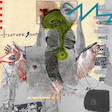 On previous records, Isotope Soap was a synth-punk band that still seemed to be driven by the sound and style of punk, but on In Need Of Systematic Energy, it feels like this Swedish project has passed the point of no return. It reminds me of horror sci-fi movies where the main character has finally been entirely consumed by the evil computer virus or demon spirit that started slowly infecting them at the start of the film. Isotope Soap is more machine than man this time around, with vocals pushed to the brink of reasonable taste, sometimes sounding more like a Minion than a human, or that one baritone-voiced Gremlin who wears sunglasses. The music jumps around considerably as well, song-based in nature but recalling Factrix, Red Asphalt, The Residents, Screamers and such… the first-wave art-school post-punk pranksters who liked to reflect society’s ugliest features through rudimentary synthetic means. It’s weird and aggressive and imposing, but unlike say FNU Clone or Timmy’s Organism, Isotope Soap rarely utilize noise or feedback to shape the outlines of their techno hellscape. Definitely the type of group I’d expect to write a concept album about planet-destroying digital black-market currency, if that wasn’t already a real and popular thing that sports stadiums are being named after!
On previous records, Isotope Soap was a synth-punk band that still seemed to be driven by the sound and style of punk, but on In Need Of Systematic Energy, it feels like this Swedish project has passed the point of no return. It reminds me of horror sci-fi movies where the main character has finally been entirely consumed by the evil computer virus or demon spirit that started slowly infecting them at the start of the film. Isotope Soap is more machine than man this time around, with vocals pushed to the brink of reasonable taste, sometimes sounding more like a Minion than a human, or that one baritone-voiced Gremlin who wears sunglasses. The music jumps around considerably as well, song-based in nature but recalling Factrix, Red Asphalt, The Residents, Screamers and such… the first-wave art-school post-punk pranksters who liked to reflect society’s ugliest features through rudimentary synthetic means. It’s weird and aggressive and imposing, but unlike say FNU Clone or Timmy’s Organism, Isotope Soap rarely utilize noise or feedback to shape the outlines of their techno hellscape. Definitely the type of group I’d expect to write a concept album about planet-destroying digital black-market currency, if that wasn’t already a real and popular thing that sports stadiums are being named after!
Lime Crush Timewaster 7″ (Fettkakao)
 Vienna’s Lime Crush showed up unannounced with a gloriously primitive post-punk 7″ back in 2015, and I had more or less forgotten about them until just now, thanks to the relentless Bandcamp promotional emails that stuff all our inboxes. Glad to see they’re still causally out there being a cool band, and while not as immediately affecting of an experience as listening to the first Lime Crush 7″, this one is charming nonetheless. “Timewaster” sounds like an alternate-reality Kids In The Hall intro theme with a little bit of Art Brut (remember them?) and a little bit of Dolly Mixture. “Téléphone” sounds like The Make Up fronted by Kim Gordon, were she a French-speaking twenty-something. “Park” is last and probably my favorite track here, care of the endearing spoken intro (wherein the vocalist refers to the bedroom as “the sleeping room” – is that a Swiss thing?) and the song’s punkier instincts, what with the drums bashing around and the non-distorted guitar strummed with pizazz. Much like their debut EP, this one is over and out in a fizzy blip, a choice that’s rarely wrong in the realm of post-punk.
Vienna’s Lime Crush showed up unannounced with a gloriously primitive post-punk 7″ back in 2015, and I had more or less forgotten about them until just now, thanks to the relentless Bandcamp promotional emails that stuff all our inboxes. Glad to see they’re still causally out there being a cool band, and while not as immediately affecting of an experience as listening to the first Lime Crush 7″, this one is charming nonetheless. “Timewaster” sounds like an alternate-reality Kids In The Hall intro theme with a little bit of Art Brut (remember them?) and a little bit of Dolly Mixture. “Téléphone” sounds like The Make Up fronted by Kim Gordon, were she a French-speaking twenty-something. “Park” is last and probably my favorite track here, care of the endearing spoken intro (wherein the vocalist refers to the bedroom as “the sleeping room” – is that a Swiss thing?) and the song’s punkier instincts, what with the drums bashing around and the non-distorted guitar strummed with pizazz. Much like their debut EP, this one is over and out in a fizzy blip, a choice that’s rarely wrong in the realm of post-punk.
The Monsters Du Hesch Cläss, Ig Bi Träsch LP (Slovenly / Mondo Mongo)
 Even if all I did was listen to in-the-red garage-punk all day long, I’d still never run out of new material to discover. There’s a staggering amount of bands who’ve played this sort of thing over the past half a century (yikes), with seemingly new ones entering the fray every day. This is part of the reason why I can’t help but applaud The Monsters, out of Bern, Switzerland, for being so boldly, wildly generic that their sheer simplicity, and their clear devotion to it, propels them ever forward. They don’t write songs so much as communicate the majesty of amps-to-eleven blues riffs, caveman drumming and shouted/screamed lyrics, often little more than a repeated phrase. They truly wail away at it with such compassion for the sound that the lack of noteworthy songs or hooks is a minor issue; if you want the sound of wild rock n’ roll, you simply can’t go wrong here. (Unless of course you need a dramatic reinvention of the garage-rock wheel, in which case, I send you my thoughts and prayers.) This is the music that surely plays inside Jack White’s head when he sees that his Amazon packages were delivered, and it’s fixing to be the same for me, too.
Even if all I did was listen to in-the-red garage-punk all day long, I’d still never run out of new material to discover. There’s a staggering amount of bands who’ve played this sort of thing over the past half a century (yikes), with seemingly new ones entering the fray every day. This is part of the reason why I can’t help but applaud The Monsters, out of Bern, Switzerland, for being so boldly, wildly generic that their sheer simplicity, and their clear devotion to it, propels them ever forward. They don’t write songs so much as communicate the majesty of amps-to-eleven blues riffs, caveman drumming and shouted/screamed lyrics, often little more than a repeated phrase. They truly wail away at it with such compassion for the sound that the lack of noteworthy songs or hooks is a minor issue; if you want the sound of wild rock n’ roll, you simply can’t go wrong here. (Unless of course you need a dramatic reinvention of the garage-rock wheel, in which case, I send you my thoughts and prayers.) This is the music that surely plays inside Jack White’s head when he sees that his Amazon packages were delivered, and it’s fixing to be the same for me, too.
M//R Anxious Meditation 12″ (Enmossed)
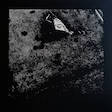 This new EP from Philadelphia’s M//R comes with a dilemma: a center label that reads “33 or 45 RPM”. It’s a brutal withholding of musical information if you ask me, the sort of thing you shouldn’t be legally allowed to do unless you’re Vomir or Government Alpha or some other harsh noise project where it might truly not make a sonic difference. Luckily I bugged M//R for the truth, which is that Anxious Meditation was mastered at 45 but “better at 33”, and well, maybe I just need to follow the artist’s lead and stop caring about the time-space continuum and let the heady spacial vibes of his music take over. These tracks are deep lurches into space, in line with producers like Pearson Sound, Mala and the Deep Medi Musik label, just without the dubstep beats and the conceptual stank that comes with it. The rhythms are paced for contemplation as opposed to dancing – certainly more meditative than anxious – in line with Earthen Sea’s unconventional rhythmic approach though differently applied. On 45 it’s a flickering trip through a pot-leaf-shaped space station, on 33 it’s like those early Space Afrika records with the sentimentality of a Sven Weisemann dub. I’m tempted to try it on 78, but I will respect M//R’s wishes and stick with the authorized revolutions-per-minute.
This new EP from Philadelphia’s M//R comes with a dilemma: a center label that reads “33 or 45 RPM”. It’s a brutal withholding of musical information if you ask me, the sort of thing you shouldn’t be legally allowed to do unless you’re Vomir or Government Alpha or some other harsh noise project where it might truly not make a sonic difference. Luckily I bugged M//R for the truth, which is that Anxious Meditation was mastered at 45 but “better at 33”, and well, maybe I just need to follow the artist’s lead and stop caring about the time-space continuum and let the heady spacial vibes of his music take over. These tracks are deep lurches into space, in line with producers like Pearson Sound, Mala and the Deep Medi Musik label, just without the dubstep beats and the conceptual stank that comes with it. The rhythms are paced for contemplation as opposed to dancing – certainly more meditative than anxious – in line with Earthen Sea’s unconventional rhythmic approach though differently applied. On 45 it’s a flickering trip through a pot-leaf-shaped space station, on 33 it’s like those early Space Afrika records with the sentimentality of a Sven Weisemann dub. I’m tempted to try it on 78, but I will respect M//R’s wishes and stick with the authorized revolutions-per-minute.
Dan Nicholls Mattering And Meaning LP (We Jazz)
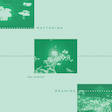 Sometimes I can’t tell if I’m controlling what I enjoy or if what I enjoy is controlling me. Do I really want to hear smudgy post-production jazz loops, or is some grand algorithm feeding them to me subliminally and I am defenseless to resist? Dan Nicholls’ Mattering And Meaning sure seems tailor-crafted to entertain a fella like me, and entertain it does, a relaxed and drifting suite of meandering jazz piano, domestic drones and ambient field-recordings. Very much of the times, but if it makes me feel this good, who cares how where or why it arrived? Reminds me quite a bit of personal faves O$VMV$M, the way in which the fractured melodies linger in the air like plumes of burnt sage, but Nicholls’s practice isn’t informed by dance-floor rhythm, grooves or anything tangentially related to raving. These tracks navigate their pathways like streams down a mountain, simply following the pull of gravity and taking whatever awkward turns or abrupt drops come along the way. His piano is loose and contemplative, clusters of notes and clinking high keys engaged in an ongoing conversation as the digitally-processed air, background chatter and modern auditory distractions try to wiggle their way in. “Breathe” is a particularly stellar moment, with Nicholls flying fast and free on his piano as the rest of his stoic little world inhales and exhales all around. Mmmm!
Sometimes I can’t tell if I’m controlling what I enjoy or if what I enjoy is controlling me. Do I really want to hear smudgy post-production jazz loops, or is some grand algorithm feeding them to me subliminally and I am defenseless to resist? Dan Nicholls’ Mattering And Meaning sure seems tailor-crafted to entertain a fella like me, and entertain it does, a relaxed and drifting suite of meandering jazz piano, domestic drones and ambient field-recordings. Very much of the times, but if it makes me feel this good, who cares how where or why it arrived? Reminds me quite a bit of personal faves O$VMV$M, the way in which the fractured melodies linger in the air like plumes of burnt sage, but Nicholls’s practice isn’t informed by dance-floor rhythm, grooves or anything tangentially related to raving. These tracks navigate their pathways like streams down a mountain, simply following the pull of gravity and taking whatever awkward turns or abrupt drops come along the way. His piano is loose and contemplative, clusters of notes and clinking high keys engaged in an ongoing conversation as the digitally-processed air, background chatter and modern auditory distractions try to wiggle their way in. “Breathe” is a particularly stellar moment, with Nicholls flying fast and free on his piano as the rest of his stoic little world inhales and exhales all around. Mmmm!
Picture Metric EP 12″ (Kalahari Oyster Cult)
 God, I love these European techno producers who seem completely disinterested in providing any sort of visual or lyrical aesthetic, focusing solely on the sounds they produce as the extent of their commentary with the world. Take for example the plainly-monikered DJ Central, who for some reason decided to go by “Picture” on this new four-track EP called “Metric”… he’s clearly just picking meaningless words out of a hat, a pesty yet necessary vessel in order to deliver the sonic goods. Makes sense to me here, as these four tunes are transcendent slices of deep house which require no window dressing. Spotless and hypnotic, these cuts ride a little faster than I’d expect from DJ Central, but I could use the exercise. The flittering cymbal clicks of “Silke” are practically ASMR, coasting on trance-like chords and pads; dance-floor psychedelia for endless Euro nights. Nothing particularly new happening here, I think it’s safe to say, but Picture so impeccably crafts these tracks that lush and buoyant house music suddenly feels like a grand new concept in his hands. Hope to one day hear these tracks on a proper sound system, but for now they’re causing me to splash around my kitchen as I do the nightly dishes while listening.
God, I love these European techno producers who seem completely disinterested in providing any sort of visual or lyrical aesthetic, focusing solely on the sounds they produce as the extent of their commentary with the world. Take for example the plainly-monikered DJ Central, who for some reason decided to go by “Picture” on this new four-track EP called “Metric”… he’s clearly just picking meaningless words out of a hat, a pesty yet necessary vessel in order to deliver the sonic goods. Makes sense to me here, as these four tunes are transcendent slices of deep house which require no window dressing. Spotless and hypnotic, these cuts ride a little faster than I’d expect from DJ Central, but I could use the exercise. The flittering cymbal clicks of “Silke” are practically ASMR, coasting on trance-like chords and pads; dance-floor psychedelia for endless Euro nights. Nothing particularly new happening here, I think it’s safe to say, but Picture so impeccably crafts these tracks that lush and buoyant house music suddenly feels like a grand new concept in his hands. Hope to one day hear these tracks on a proper sound system, but for now they’re causing me to splash around my kitchen as I do the nightly dishes while listening.
Prurient Son Of Sam Of Mice And Men 7″ (Hospital Productions)
 Kinda wild to think that Dom Fernow has been Prurient for like a quarter of a century now. There are perhaps a few dozen noise artists who’ve been going that long, but I appreciate the various twists and turns that Prurient has taken through the years while staying true to his general mood and spirit. From gutter noise to Mortal Kombat soundtrack imitation to towers of rickety practice amps feeding back, it’s been a fun journey to follow, if often confounding and or cringeworthy (perhaps on purpose – who knows?). Cool to see he’s still releasing singles on his own label with sensational and confusing titles, and this new seven-inch is a worthy addition to his already vast discography. “Deer That Come To Drink In The Dark” is built on a mournful synth melody, clanging metal and what sounds like a bowling strike, devolving into sickening radiator hum, the squeal of tires and a menacing dog barking at the end of a chain-link alley. As with all Prurient material, there is probably a very specific theme at play here but it’s all too inscrutable to ever unwrap. “Mannequin In Bulletproof Car” is the b-side track, another evocative title enhanced by the cinematic ebb and flow of sinister buzzing, distant hardcore screams and echoing feedback in the proud Broken Flag tradition. Curious as ever to see what Prurient’s next twenty-five years will produce.
Kinda wild to think that Dom Fernow has been Prurient for like a quarter of a century now. There are perhaps a few dozen noise artists who’ve been going that long, but I appreciate the various twists and turns that Prurient has taken through the years while staying true to his general mood and spirit. From gutter noise to Mortal Kombat soundtrack imitation to towers of rickety practice amps feeding back, it’s been a fun journey to follow, if often confounding and or cringeworthy (perhaps on purpose – who knows?). Cool to see he’s still releasing singles on his own label with sensational and confusing titles, and this new seven-inch is a worthy addition to his already vast discography. “Deer That Come To Drink In The Dark” is built on a mournful synth melody, clanging metal and what sounds like a bowling strike, devolving into sickening radiator hum, the squeal of tires and a menacing dog barking at the end of a chain-link alley. As with all Prurient material, there is probably a very specific theme at play here but it’s all too inscrutable to ever unwrap. “Mannequin In Bulletproof Car” is the b-side track, another evocative title enhanced by the cinematic ebb and flow of sinister buzzing, distant hardcore screams and echoing feedback in the proud Broken Flag tradition. Curious as ever to see what Prurient’s next twenty-five years will produce.
Tha Retail Simps Reverberant Scratch: 9 Shots In Tha Dark LP (Total Punk)
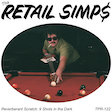 My main gripe with LMFAO’s “Party Rock Anthem” is a simple one: where exactly is the actual party rock? They allege it’s in the house tonight, yet as I listen, it’s nowhere to be found. Good thing then that Tha Retail Simps have since formed, as this nine-song debut is full of the party rock I’d been longing for. They play their songs as if time stopped in 1976, the styles and trends frozen from that point forward, teens still smoking unfiltered cigarettes in suede bellbottoms but ready and willing to have their little ears blown away by punk rock. Tha ‘Simps embody this vibe, presenting as hippies who hate hippies, or punk rockers before the stereotypical image was fully formulated. Definitely the sorta thing that would’ve been approved by both Richard Meltzer and Allen Ginsberg. I’m reminded of The Gizmos and The Penetrators while listening to these nine shots in the dark… maybe the first Home Blitz records too, if they were written and performed by delinquents instead of an honor-roll student. This is rock music as a rude social experiment, by outcasts for outcasts, including an Unnatural Axe cover that sounds like they wrote it themselves. Makes me think of what Joey Ramone looked like before he started calling himself Joey Ramone and it puts a big ol’ smile on my face.
My main gripe with LMFAO’s “Party Rock Anthem” is a simple one: where exactly is the actual party rock? They allege it’s in the house tonight, yet as I listen, it’s nowhere to be found. Good thing then that Tha Retail Simps have since formed, as this nine-song debut is full of the party rock I’d been longing for. They play their songs as if time stopped in 1976, the styles and trends frozen from that point forward, teens still smoking unfiltered cigarettes in suede bellbottoms but ready and willing to have their little ears blown away by punk rock. Tha ‘Simps embody this vibe, presenting as hippies who hate hippies, or punk rockers before the stereotypical image was fully formulated. Definitely the sorta thing that would’ve been approved by both Richard Meltzer and Allen Ginsberg. I’m reminded of The Gizmos and The Penetrators while listening to these nine shots in the dark… maybe the first Home Blitz records too, if they were written and performed by delinquents instead of an honor-roll student. This is rock music as a rude social experiment, by outcasts for outcasts, including an Unnatural Axe cover that sounds like they wrote it themselves. Makes me think of what Joey Ramone looked like before he started calling himself Joey Ramone and it puts a big ol’ smile on my face.
Romero Turn It On! LP (Feel It)
 Sometimes I worry it’s a little too overstated here, my unabashed love and appreciation of the Feel It Records label, Australian bands and the power-pop genre, but they all truly bring me joy! Seems like I’d be the precise demographic for Romero’s debut then, seeing as they’re a new Australian power-pop group on Feel It, but after a few spins, this one misses me almost entirely. We’re entering “unfair judgment” territory here, but something about it feels too formulated and artificial, their sound similar to a rock band assembled by a board-room of ad execs who need an edgy-but-not-too-edgy band to do rock poses in front of the camera and write proficient and inoffensive rock songs while advertising the newest iPhone or whatever. Romero borrow heavily from The Strokes (circa First Impressions Of Earth), Royal Headache and Sheer Mag, quite distinctively and specifically throughout. They open with a Royal Headache-style groove, and follow it with a Strokes-y one, and while they certainly have the chops, it often feels like a clinical exercise, a band trying to make it big rather than revel in their own unique chemistry. By the time the dual guitar attack and cowbell hipshake of the title track hits, their brazenly Sheer Maggiest track on the record, I’m ready to tap out. There’s a very good chance Romero are cool sincere people doing this band solely for the love of playing in a band, but Turn It On! sounds like a band trying to be a cleaned-up, Instagram-ready version of other established bands and I can’t get into it.
Sometimes I worry it’s a little too overstated here, my unabashed love and appreciation of the Feel It Records label, Australian bands and the power-pop genre, but they all truly bring me joy! Seems like I’d be the precise demographic for Romero’s debut then, seeing as they’re a new Australian power-pop group on Feel It, but after a few spins, this one misses me almost entirely. We’re entering “unfair judgment” territory here, but something about it feels too formulated and artificial, their sound similar to a rock band assembled by a board-room of ad execs who need an edgy-but-not-too-edgy band to do rock poses in front of the camera and write proficient and inoffensive rock songs while advertising the newest iPhone or whatever. Romero borrow heavily from The Strokes (circa First Impressions Of Earth), Royal Headache and Sheer Mag, quite distinctively and specifically throughout. They open with a Royal Headache-style groove, and follow it with a Strokes-y one, and while they certainly have the chops, it often feels like a clinical exercise, a band trying to make it big rather than revel in their own unique chemistry. By the time the dual guitar attack and cowbell hipshake of the title track hits, their brazenly Sheer Maggiest track on the record, I’m ready to tap out. There’s a very good chance Romero are cool sincere people doing this band solely for the love of playing in a band, but Turn It On! sounds like a band trying to be a cleaned-up, Instagram-ready version of other established bands and I can’t get into it.
The Shifters Open Vault 2xLP (Insolito / Adagio 830)
 In the panicked time of the no-foreseeable-gigs pandemic era, The Shifters did what many bands did and dumped a big pile of unreleased tracks on Bandcamp in hopes that fans might send a few much-needed bucks their way. This apparently caught the attention of Insolito and Adagio 830, and now we have a sharp double-LP edition in the form of Open Vault. I’m not certain that I needed two full LPs of The Shifters’ random outtakes and demo recordings, but at the same time, I’m not certain that I didn’t need them, either. I’m a fan of the group, and seeing as shambolic and homespun lo-fi post-punk indie is very much their vibe, this has been a treat to listen to. Plenty of random tracks I’m unfamiliar with, and hits like “Work/Life Gym Etc” offered up in pleasantly roughed-up form here. More than a few GarageBand tracks too, recorded solely through their Macbook’s built-in mic, and I have to say, they could’ve done an album of just these tracks and I’d be more than content. “Year After Year” and “Faux American History 101” are two of these home recordings and they’re real charmers, akin to the finest untrained musicians copying The Fall on limited singles back in 1979 (like Horrible Nurds, Thin Yoghurts, Four Plugz and the like). I don’t want to encourage everybody to dump their outtakes on Bandcamp in hopes of a record deal, but in this case it worked out nicely.
In the panicked time of the no-foreseeable-gigs pandemic era, The Shifters did what many bands did and dumped a big pile of unreleased tracks on Bandcamp in hopes that fans might send a few much-needed bucks their way. This apparently caught the attention of Insolito and Adagio 830, and now we have a sharp double-LP edition in the form of Open Vault. I’m not certain that I needed two full LPs of The Shifters’ random outtakes and demo recordings, but at the same time, I’m not certain that I didn’t need them, either. I’m a fan of the group, and seeing as shambolic and homespun lo-fi post-punk indie is very much their vibe, this has been a treat to listen to. Plenty of random tracks I’m unfamiliar with, and hits like “Work/Life Gym Etc” offered up in pleasantly roughed-up form here. More than a few GarageBand tracks too, recorded solely through their Macbook’s built-in mic, and I have to say, they could’ve done an album of just these tracks and I’d be more than content. “Year After Year” and “Faux American History 101” are two of these home recordings and they’re real charmers, akin to the finest untrained musicians copying The Fall on limited singles back in 1979 (like Horrible Nurds, Thin Yoghurts, Four Plugz and the like). I don’t want to encourage everybody to dump their outtakes on Bandcamp in hopes of a record deal, but in this case it worked out nicely.
Straw Man Army SOS LP (D4MT Labs Inc / La Vida Es Un Mus)
 Straw Man Army’s 2020 debut album Age Of Exile was one of the freshest punk debuts I’d heard in years, distinctly on its own trip without being anything other than punk (or post-punk). It’s a hard work to follow, but Straw Man Army succeed once more with SOS. If you’re not familiar, you’re in for a treat: this New York group (featuring members of Kaleidoscope) plays an urgent and distressed form of post-punk, with tight and unique rhythms, rapid-fire spoken vocals and a permeating peace-punk gloom without adhering to generic peace-punk signifiers. Guitars are brittle and mostly undistorted, the drumming is precise and full of wild rolls and tumbles, and these songs act as small flickers of candlelight against the pitch-black backdrop of capitalism, infinite war and inequality. While listening, I’m picturing what Uranium Club would sound like if they were dead serious and signed to Crass Records, or those spoken-word Propagandhi songs if they were rendered artistically and beyond the smelly reach of Fat Mike, but really those aren’t accurate comparisons so much as fleeting thoughts – Straw Man Army are as singular a punk band as I can recall. There’s less feral energy on SOS than their debut, which leads to more of a refined and sophisticated musical statement; normally I’d be against that, but Straw Man Army are so masterful and talented that it works in their favor. Even the melodies themselves sound ill at ease and suspicious, so skillful are Straw Man Army in infecting every inch of their music with a barren dread. Strongly recommended!
Straw Man Army’s 2020 debut album Age Of Exile was one of the freshest punk debuts I’d heard in years, distinctly on its own trip without being anything other than punk (or post-punk). It’s a hard work to follow, but Straw Man Army succeed once more with SOS. If you’re not familiar, you’re in for a treat: this New York group (featuring members of Kaleidoscope) plays an urgent and distressed form of post-punk, with tight and unique rhythms, rapid-fire spoken vocals and a permeating peace-punk gloom without adhering to generic peace-punk signifiers. Guitars are brittle and mostly undistorted, the drumming is precise and full of wild rolls and tumbles, and these songs act as small flickers of candlelight against the pitch-black backdrop of capitalism, infinite war and inequality. While listening, I’m picturing what Uranium Club would sound like if they were dead serious and signed to Crass Records, or those spoken-word Propagandhi songs if they were rendered artistically and beyond the smelly reach of Fat Mike, but really those aren’t accurate comparisons so much as fleeting thoughts – Straw Man Army are as singular a punk band as I can recall. There’s less feral energy on SOS than their debut, which leads to more of a refined and sophisticated musical statement; normally I’d be against that, but Straw Man Army are so masterful and talented that it works in their favor. Even the melodies themselves sound ill at ease and suspicious, so skillful are Straw Man Army in infecting every inch of their music with a barren dread. Strongly recommended!
Tapes Meets Nikolaienko Sunda School II 7″ (Porridge Bullet)
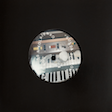 I know we’ve got some fans of rickety bleeps and watery bloops reading these pages, so please, direct your attention to this new seven-inch EP from Tapes Meets Nikolaienko on the Estonian Porridge Bullet label. This is top-shelf electronic dub artistry on a homespun personal level from Jackson “Tapes” Bailey and Dmytro Nikolaienko, who apparently both used an organ to create these tasty electro vignettes. Throw a pensive, disaffected vocal over top and I’d compare it to the minimal-synth post-punk of artists like Essendon Airport and Young Marble Giants, or hotbox these tunes in the weed-smoking room and I’d compare it to Morgan Buckley and Sam Gendel, but Tapes and Nikolaienko keep to their own trip here, loops coasting along and four hands busily attending to them. Very much in that “leftfield” zone that I find myself frequently gravitating towards as a listener, but more as a natural consequence of this duo’s inquisitive mindset and melodic behavior than any sort of intentional desire to sound strange. Not sure I am ready to accept the fifteen-dollar seven-inch as a standard matter of course, but I can’t imagine any seekers of humbly psychedelic electronics dropping that much on Sunda School II and feeling as though they’ve been cheated.
I know we’ve got some fans of rickety bleeps and watery bloops reading these pages, so please, direct your attention to this new seven-inch EP from Tapes Meets Nikolaienko on the Estonian Porridge Bullet label. This is top-shelf electronic dub artistry on a homespun personal level from Jackson “Tapes” Bailey and Dmytro Nikolaienko, who apparently both used an organ to create these tasty electro vignettes. Throw a pensive, disaffected vocal over top and I’d compare it to the minimal-synth post-punk of artists like Essendon Airport and Young Marble Giants, or hotbox these tunes in the weed-smoking room and I’d compare it to Morgan Buckley and Sam Gendel, but Tapes and Nikolaienko keep to their own trip here, loops coasting along and four hands busily attending to them. Very much in that “leftfield” zone that I find myself frequently gravitating towards as a listener, but more as a natural consequence of this duo’s inquisitive mindset and melodic behavior than any sort of intentional desire to sound strange. Not sure I am ready to accept the fifteen-dollar seven-inch as a standard matter of course, but I can’t imagine any seekers of humbly psychedelic electronics dropping that much on Sunda School II and feeling as though they’ve been cheated.
Wow Falene LP (Maple Death)
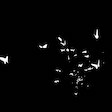 Italian quartet Wow do kind of a cool thing here, moving in multiple directions but minimally-so. A restless collection of pared-down ideas, I feel that while Falene is around half an hour long, I am less close to understanding anything about this group as when I first read the little promo sticker on the sealed polyethylene bag and decided to slide it open. Falene opens with some investigative drones, seemingly the work of a couple knobs and only one hand, and they follow it with a smoke-filled indie-goth boudoir, the sort of thing that The Black Heart Procession and Slaves messed around with back in the day when hardcore kids were wearing JNCOs the first time around. Length is no object to Wow, as the aforementioned goth song is nine minutes long; I dunno, are you gonna tell them to stop? My favorite cut is probably the b-side opening remix from Hugo Sanchez, which takes a painfully slow beat and walks it in a circle until the floorboards are worn down… reminds me of a Neubau release with live drums, chunky bass and little else, which pleases me greatly. That track wraps with a field recording of nature, which isn’t particularly revelatory at this point, and then Falene closes with a relatively brief paisley-psych ditty redolent of Sébastien Tellier or fellow Italians Jennifer Gentle, because Wow clearly threw the rulebook away without cracking it open once. Probably gonna take at least four more albums for me to start to get a grasp on this group, so I wonder which one of us will tap out first?
Italian quartet Wow do kind of a cool thing here, moving in multiple directions but minimally-so. A restless collection of pared-down ideas, I feel that while Falene is around half an hour long, I am less close to understanding anything about this group as when I first read the little promo sticker on the sealed polyethylene bag and decided to slide it open. Falene opens with some investigative drones, seemingly the work of a couple knobs and only one hand, and they follow it with a smoke-filled indie-goth boudoir, the sort of thing that The Black Heart Procession and Slaves messed around with back in the day when hardcore kids were wearing JNCOs the first time around. Length is no object to Wow, as the aforementioned goth song is nine minutes long; I dunno, are you gonna tell them to stop? My favorite cut is probably the b-side opening remix from Hugo Sanchez, which takes a painfully slow beat and walks it in a circle until the floorboards are worn down… reminds me of a Neubau release with live drums, chunky bass and little else, which pleases me greatly. That track wraps with a field recording of nature, which isn’t particularly revelatory at this point, and then Falene closes with a relatively brief paisley-psych ditty redolent of Sébastien Tellier or fellow Italians Jennifer Gentle, because Wow clearly threw the rulebook away without cracking it open once. Probably gonna take at least four more albums for me to start to get a grasp on this group, so I wonder which one of us will tap out first?
XV Basement Tapes LP (Half A Million)
 XV’s self-titled, self-released debut lit the post-punk underground on fire back in 2019, one hundred copies tantalizingly out of reach to anyone who found out about it five minutes too late. A much needed repressing arrived last year, and now we’ve got a prim vinyl issue of their Basement Tapes cassette, collecting home recordings from 2018 and 2019 (and originally released in 2020). This one is significantly looser than their self-titled debut, very much reveling in the territory of a band messing around with each other, practicing songs and breaking songs down and completely disinterested in hitting all the right notes or following traditional rock protocol. The thing I find most striking about Basement Tapes is how incredibly comfortable this trio is with each other; they display a camaraderie and closeness that most bands couldn’t even begin to fake. “Please Stop Talking” is some sort of inside-joke vocal game, the end of “Lights In The Woods” devolves into an accapella group rendition of Madonna’s “Get Into The Groove”, and closer “Goodnight” is a truly weird whisper-zone, ASMR weaponized for DIY post-punk. You simply can’t behave this way with bandmates you’re merely cool or on good terms with – XV display such a hilarious and intuitive rapport with each other that, as a listener, I almost start to feel like the secret fourth member of the band by proximity, or at least wish I was.
XV’s self-titled, self-released debut lit the post-punk underground on fire back in 2019, one hundred copies tantalizingly out of reach to anyone who found out about it five minutes too late. A much needed repressing arrived last year, and now we’ve got a prim vinyl issue of their Basement Tapes cassette, collecting home recordings from 2018 and 2019 (and originally released in 2020). This one is significantly looser than their self-titled debut, very much reveling in the territory of a band messing around with each other, practicing songs and breaking songs down and completely disinterested in hitting all the right notes or following traditional rock protocol. The thing I find most striking about Basement Tapes is how incredibly comfortable this trio is with each other; they display a camaraderie and closeness that most bands couldn’t even begin to fake. “Please Stop Talking” is some sort of inside-joke vocal game, the end of “Lights In The Woods” devolves into an accapella group rendition of Madonna’s “Get Into The Groove”, and closer “Goodnight” is a truly weird whisper-zone, ASMR weaponized for DIY post-punk. You simply can’t behave this way with bandmates you’re merely cool or on good terms with – XV display such a hilarious and intuitive rapport with each other that, as a listener, I almost start to feel like the secret fourth member of the band by proximity, or at least wish I was.

